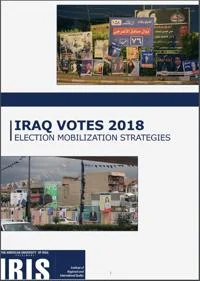Research Papers and Policy Reports
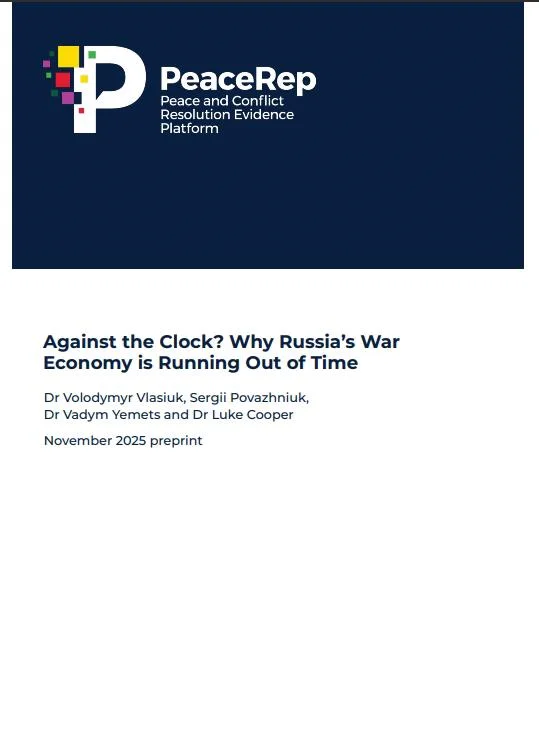
Against the Clock? Why Russia’s War Economy is Running Out of Time
Authors: Dr Volodymyr Vlasiuk, Sergii Povazhniuk, Dr Vadym Yemets and Dr Luke Cooper
This report assesses the impact of Russia’s full-scale invasion of Ukraine in 2022–2024 on the Russian economy through an analysis of macroeconomic indicators, the sectoral structure of the Russian economy, the dynamics of foreign trade, the structure of the federal budget revenues and expenditures, household income and changes in Russia’s financial reserves
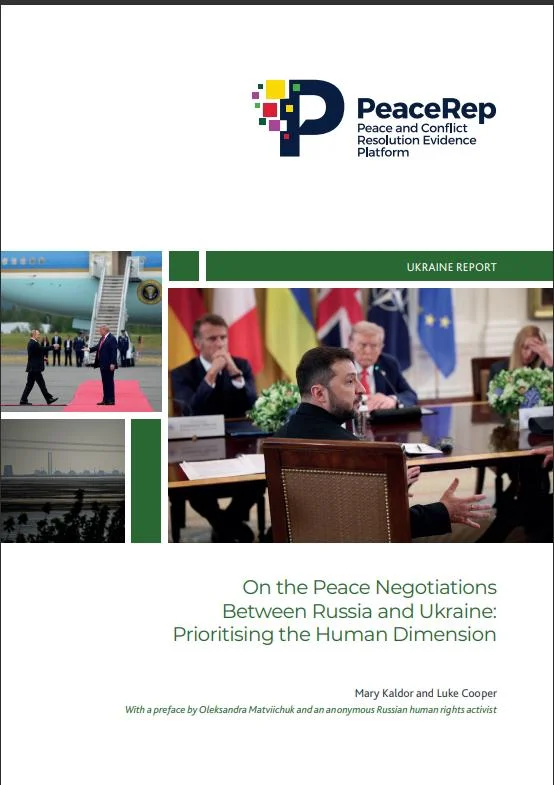
On the Peace Negotiations Between Russia and Ukraine
Authors: Mary Kaldor and Luke Cooper
This report highlights the importance of raising the “human dimension” in the talks aimed at ending the Russo-Ukrainian War.
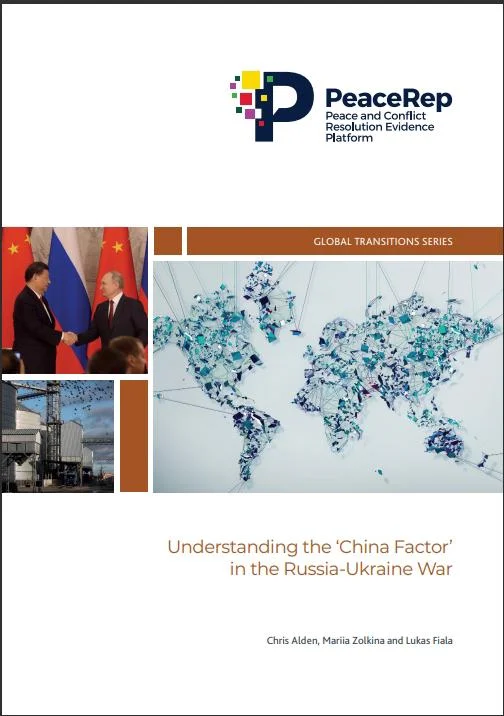
Understanding the 'China Factor' in the Russia-Ukraine War
Authors: Chris Alden, Mariia Zolkina and Lukas Fiala
This paper examines the evolution of China-Ukraine relations from 1991 to April 2025, focusing on the strategic, economic, and geopolitical implications of China’s role in the context of Russia’s full-scale invasion of Ukraine.

Gedo, Jubbaland and the Translocal Marehan
Authors: Nisar Majid and Khalif Abdirahman
This report highlights the importance of understanding territoriality – the relationship between identity and territory – in processes of state fragmentation, evident in Somalia in recent years.
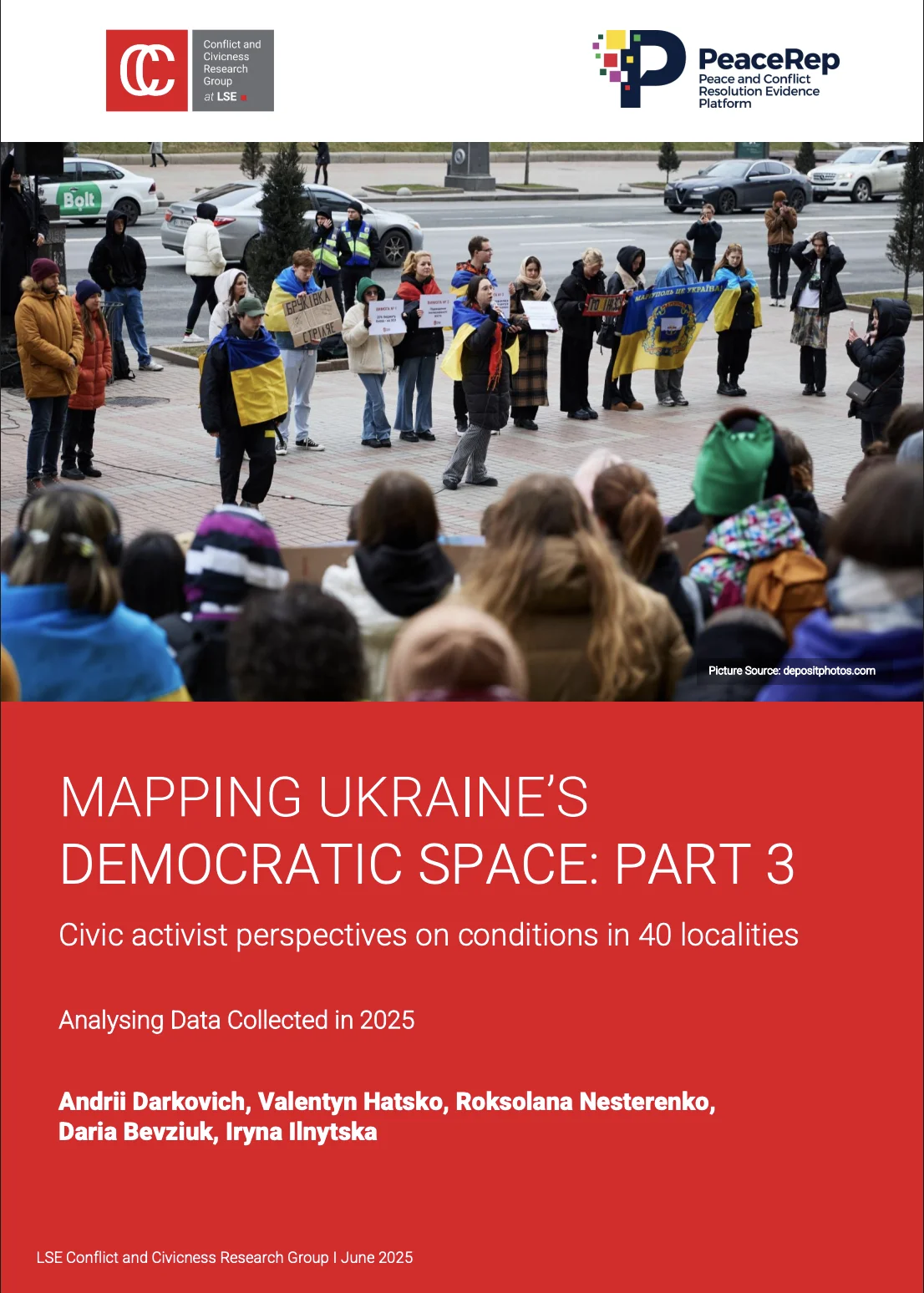
Mapping Ukraine’s Democratic Space: Part 3
Authors: Andrii Darkovich, Valentyn Hatsko, Roksolana Nesterenko, Daria Bevziuk and Iryna Ilnytska
This third report in the Mapping Ukraine’s Democratic Space series presents an in-depth assessment of the social, economic, and institutional conditions in 40 Ukrainian hromadas (territorial communities), based on surveys with 120 local activists and qualitative data collected in February 2025.
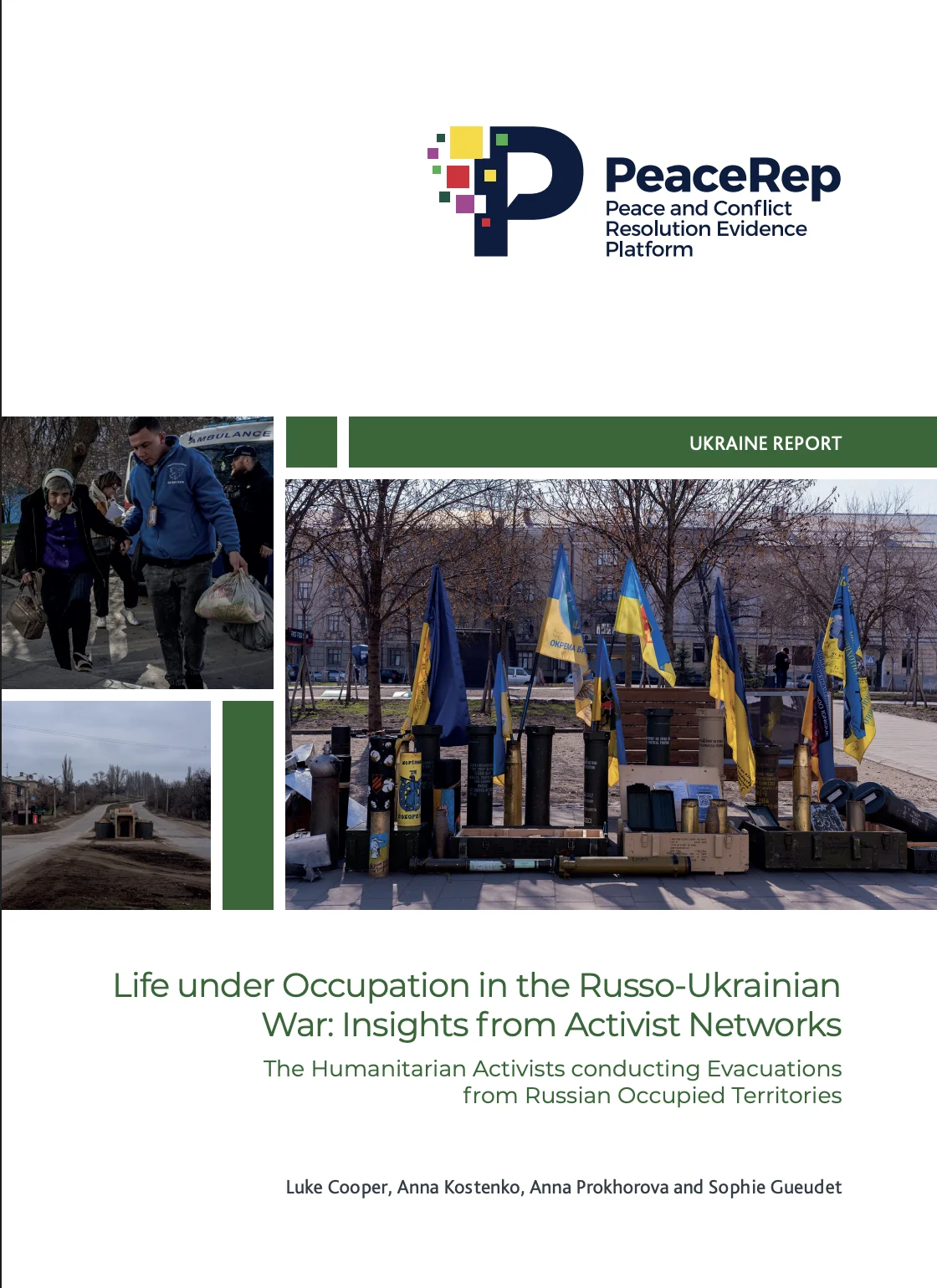
Life under Occupation in the Russo-Ukrainian War: Insights from Activist Networks
Authors: Luke Cooper, Anna Kostenko, Anna Prokhorova and Sophie Gueudet
This research report draws on interviews with civic activists conducting evacuations from Russian occupied territories in Ukraine, as well as some evacuees, to shed light on the human rights abuses and totalitarian forms of governance that shape daily life in these territories.

Russo-Ukrainian War: The Political Economy of the Present Balance of Forces
Author: Luke Cooper
This paper examines the evolving political economy of the Russo-Ukrainian War, arguing that despite its asymmetric nature, the conflict has become more balanced due to Ukraine’s institutional resilience and consistent financial support from allies.
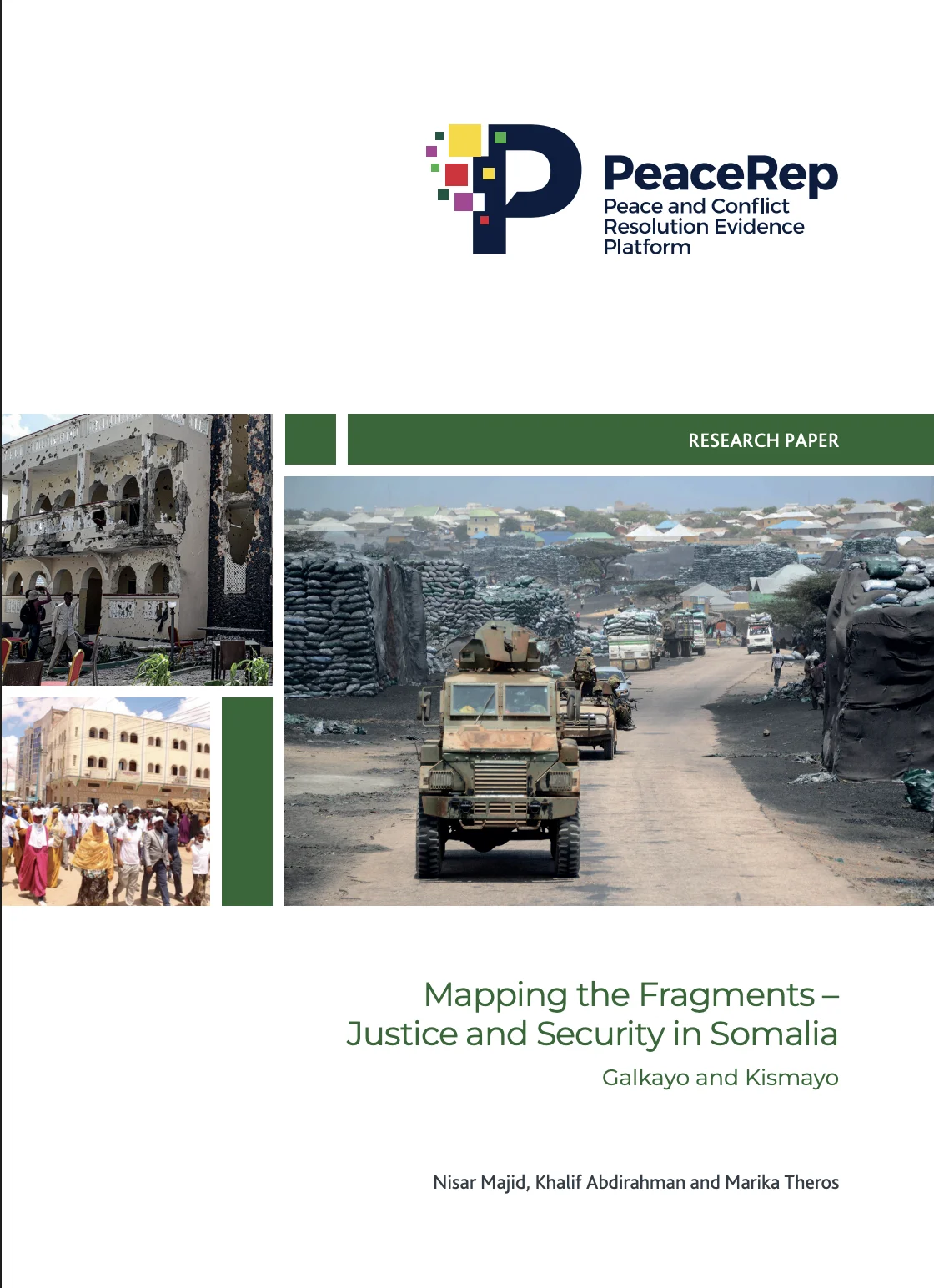
Mapping the Fragments - Justice and Security in Somalia: Galkayo and Kismayo
Authors: Nisar Majid, Khalif Abdirahman and Marika Theros
This report analyses justice and security dynamics in Somalia through a comparative study of Kismayo and Galkayo, applying Bell and Wise’s (2022) framework on fragmented peace-conflict spaces. It examines how governance and security arrangements in these towns reflect broader Somali state formation processes.
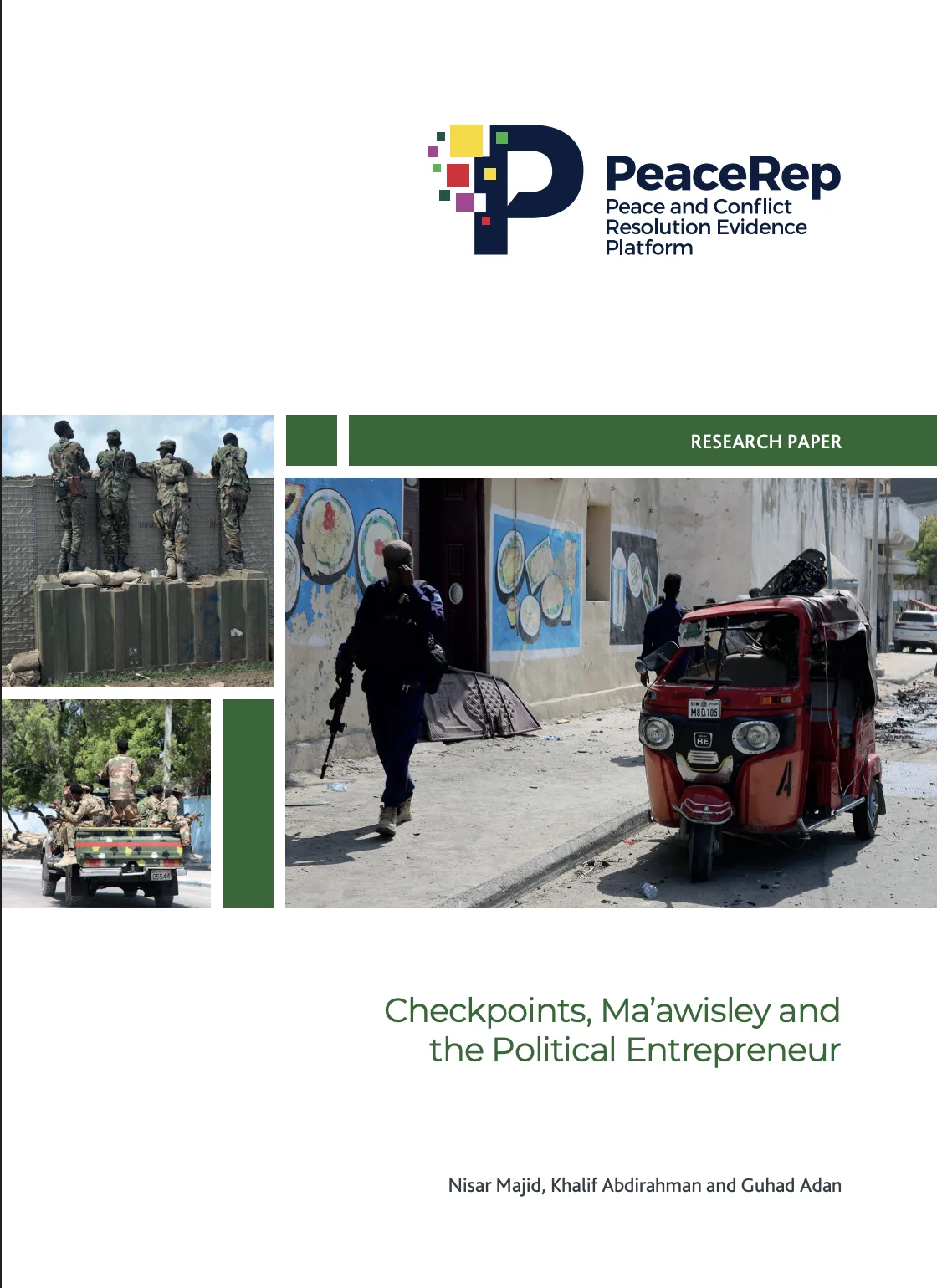
Checkpoints, Ma'awisley and the Political Entrepreneur
Authors: Nisar Majid, Khalif Abdirahman and Guhad Adan
This report examines the dynamics of checkpoints, or roadblock politics, as a critical lens for understanding Somalia’s political economy, with a focus on the Hiraan region.
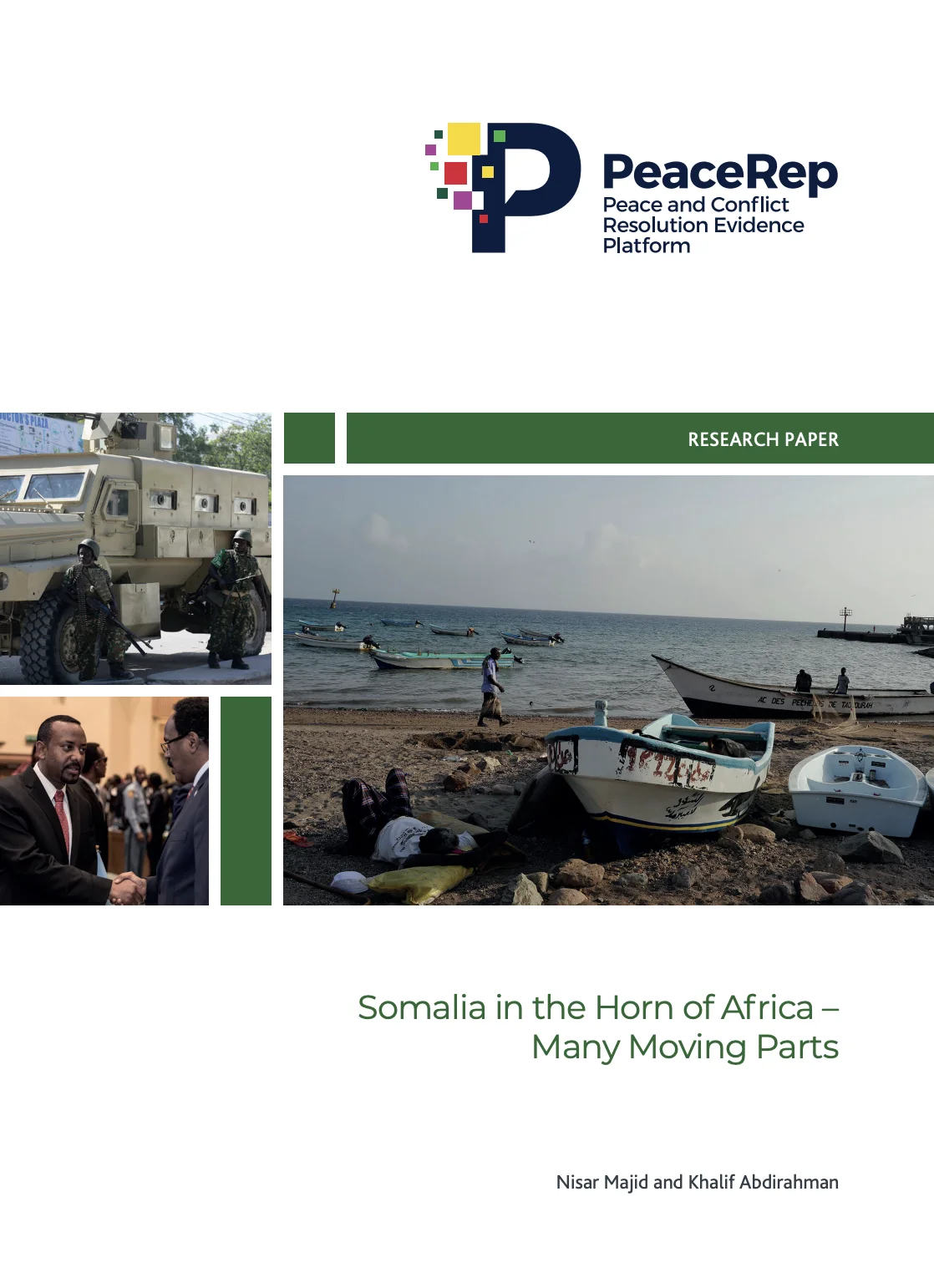
Somalia in the Horn of Africa – Many Moving Parts
Authors: Nisar Majid and Khalif Abdirahman
This paper synthesizes key analyses from PeaceRep Somalia (LSE) and its predecessor, the Conflict Research Programme, focusing on Somalia’s political dynamics through the lens of the political marketplace framework.
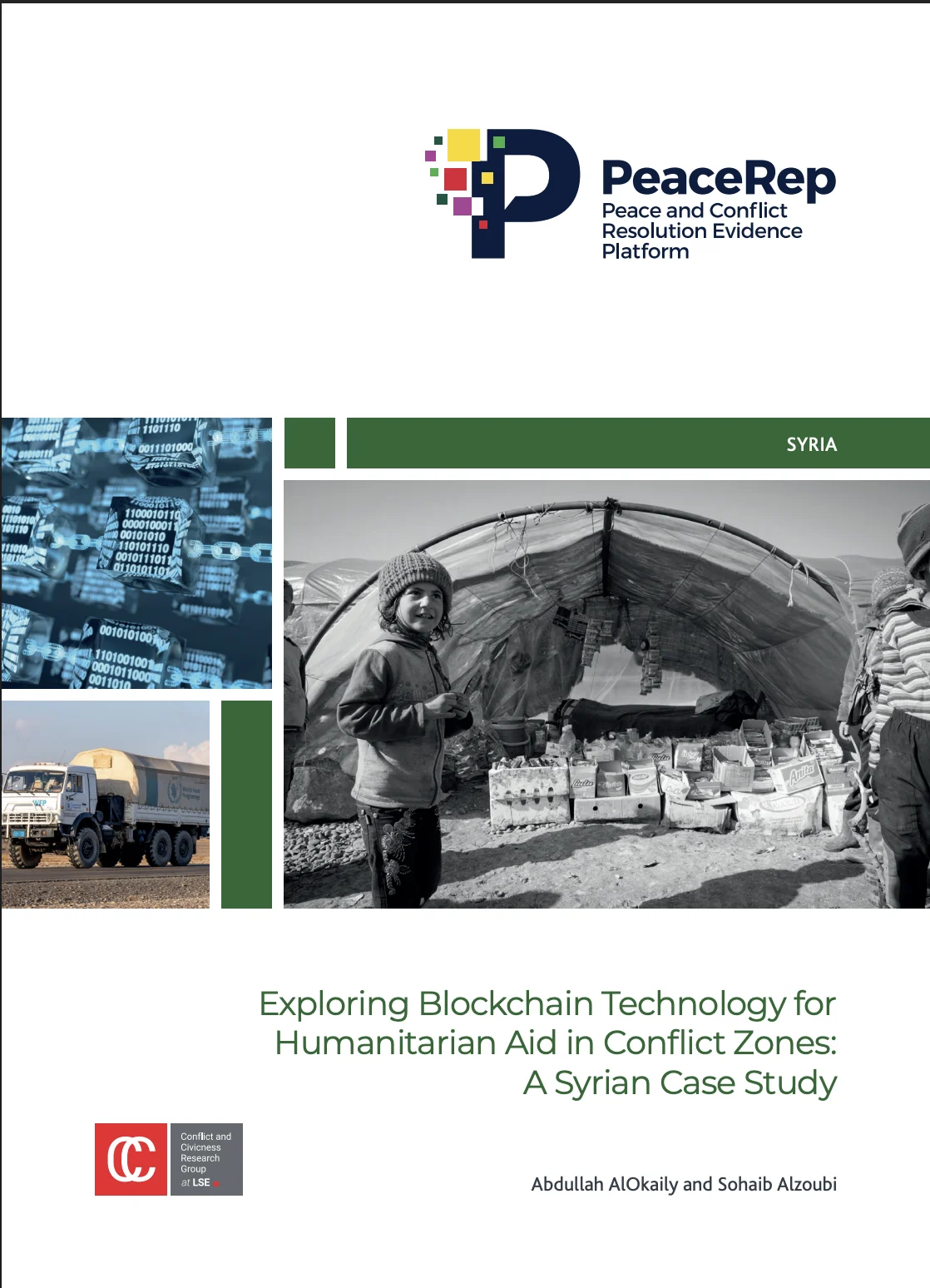
Exploring Blockchain Technology for Humanitarian Aid in Conflict Zones: A Syrian Case Study
Authors: Abdullah AlOkaily and Sohaib Alzoubi
This paper explores the viability and feasibility of utilizing blockchain technology and its constituent applications and infrastructure within the work scope of civil society organizations (CSOs) in conflict zones, focusing on the Syrian context. This paper shows how blockchain technology could be used a potential tool to support CSOs in conflict zones and enhance their operational sustainability.
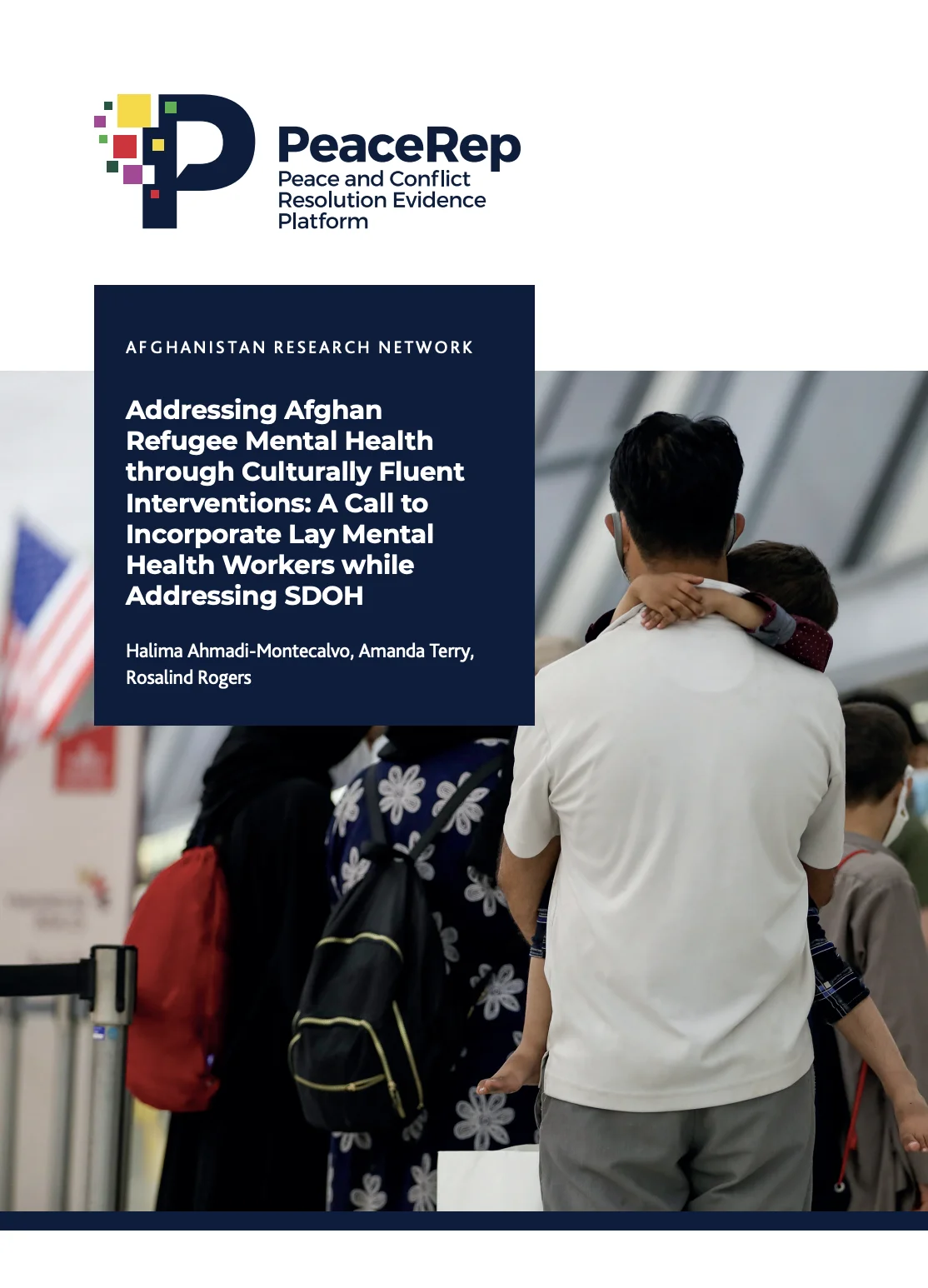
Authors: Halima Ahmadi-Montecalvo, Amanda Terry and Rosalind Rogers
While the world’s attention for the plight of refugees and asylum seekers tends to shift with new global conflicts, this paper highlights the challenges in diagnosing and delivering culturally appropriate mental health care for Afghan refugees in the United States who report more significant psychological distress, adverse living conditions, and post-resettlement mental health problems than other migrant groups.
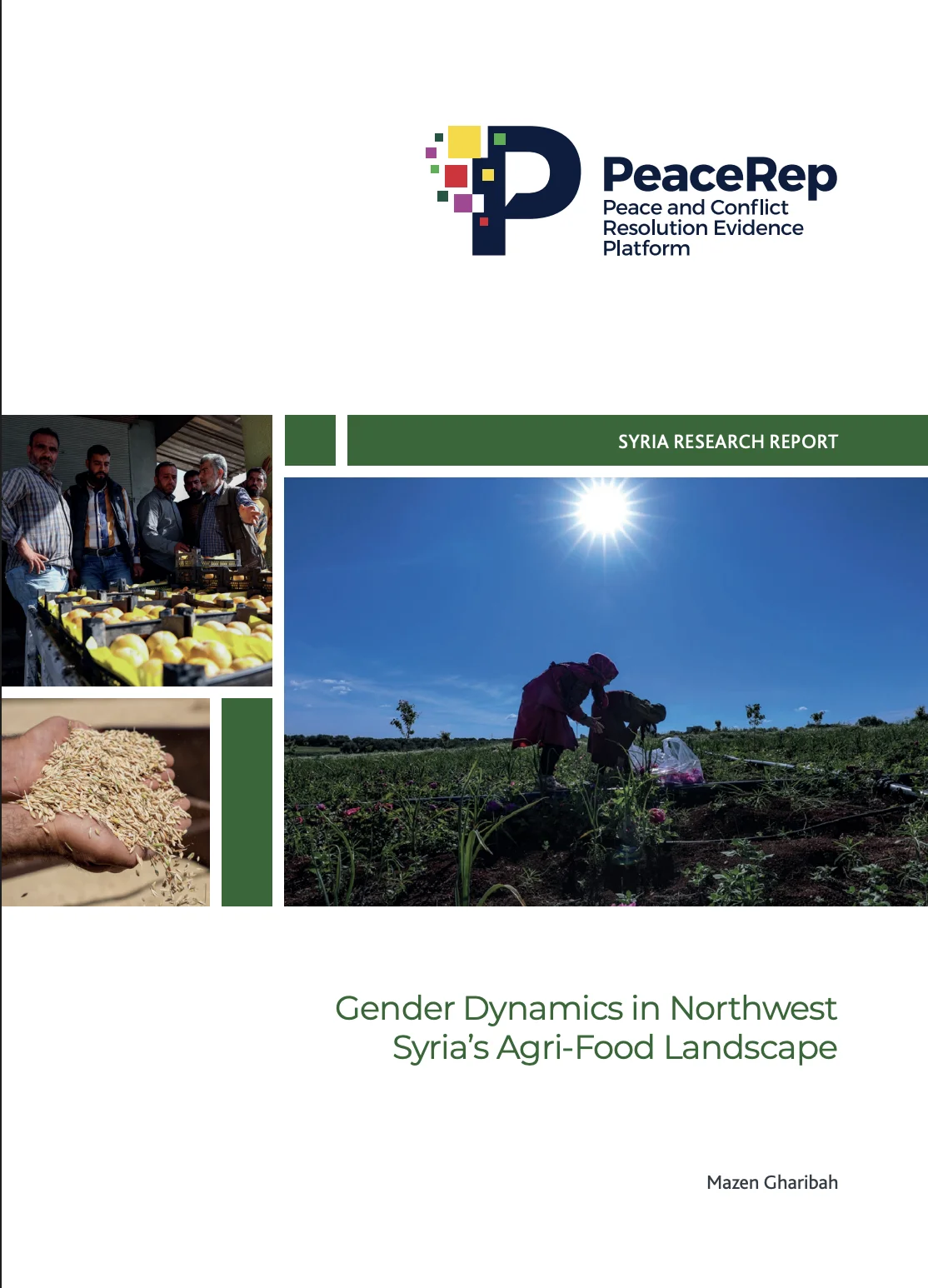
Gender Dynamics in Northwest Syria’s Agri-Food Landscape
Author: Mazen Gharibah
This report examines the gender dynamics of the agri-food sector in northwest Syria, with a main focus on the contextual challenges facing women in terms of accessibility to productive resources, such as physical assets, agricultural inputs, financial services and agricultural-related formal and informal networks across the different levels of the value chain.
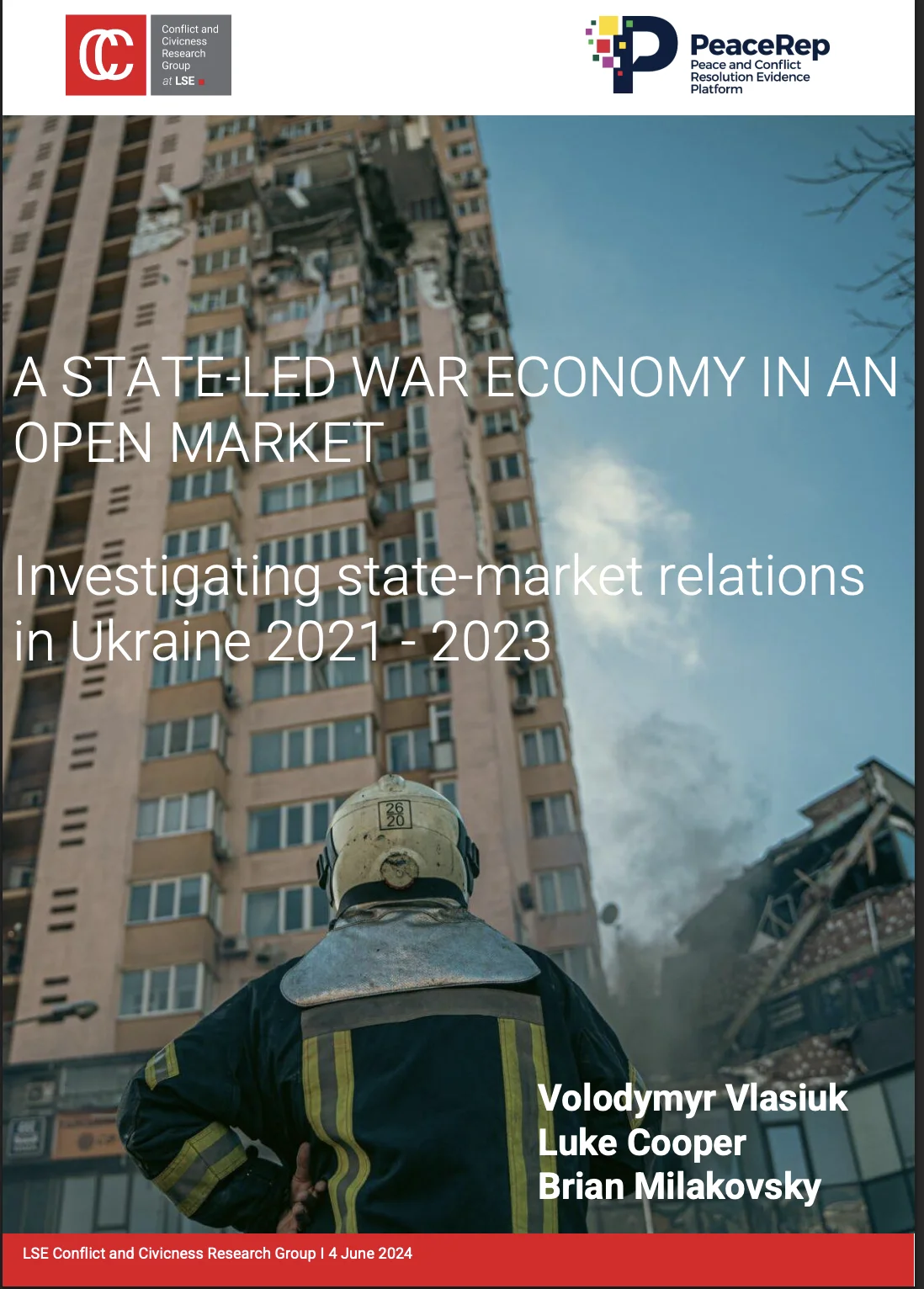
A State-led War Economy in an Open Market
Authors: Volodymyr Vlasiuk, Luke Cooper and Brian Milakovsky
This report investigates the relationship between market and state in the contemporary Ukrainian economy. The report is published as part of a collaborative partnership between Ukraine Industry Expertise and PeaceRep’s Ukraine programme.
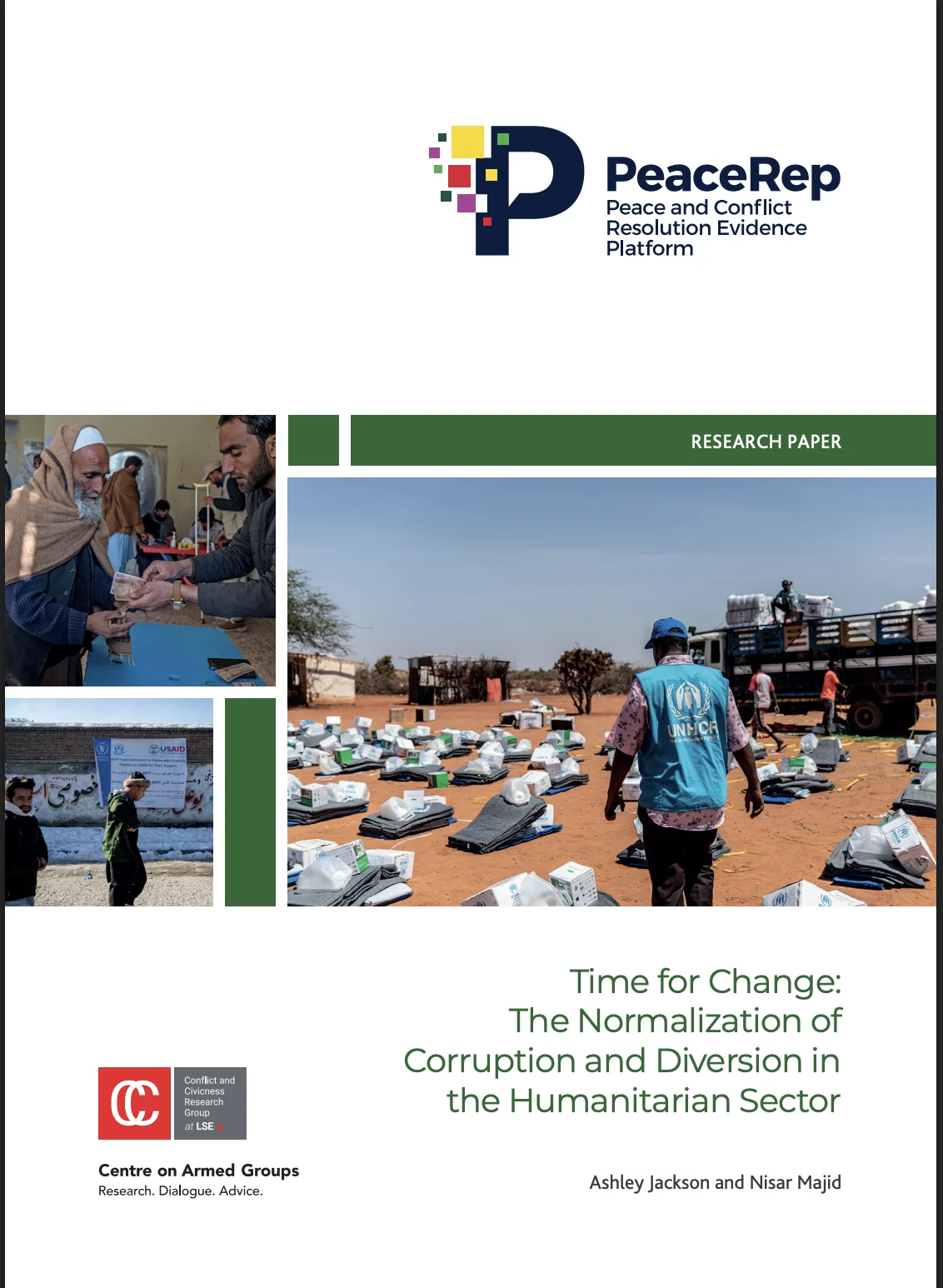
Time for Change: The Normalization of Corruption and Diversion in the Humanitarian Sector
Authors: Ashley Jackson and Nisar Majid
Drawing primarily on evidence from Somalia and Afghanistan (with reference to other contexts), this paper explores the specific aid practices that enable and perpetuate corruption and diversion, and what donors and implementers should be doing differently.

Authors: Karolina Czerska-Shaw and Roch Dunin-Wąsowicz
Through 25 in-depth interviews with key actors, this report explores the practices and modes of doing business by entrepreneurial actors working towards civic end-goals in support of Ukraine, particularly in the transnational space between Poland and Ukraine.

Nordic Frontline States? How Finland and Sweden impact NATO’s security
Author: Wojciech Michnik
This paper builds up on the explanatory power of the 'frontline states' concept, focusing on the examination of the impact of Finland’s and Sweden’s NATO membership on the defence posture of the Alliance.
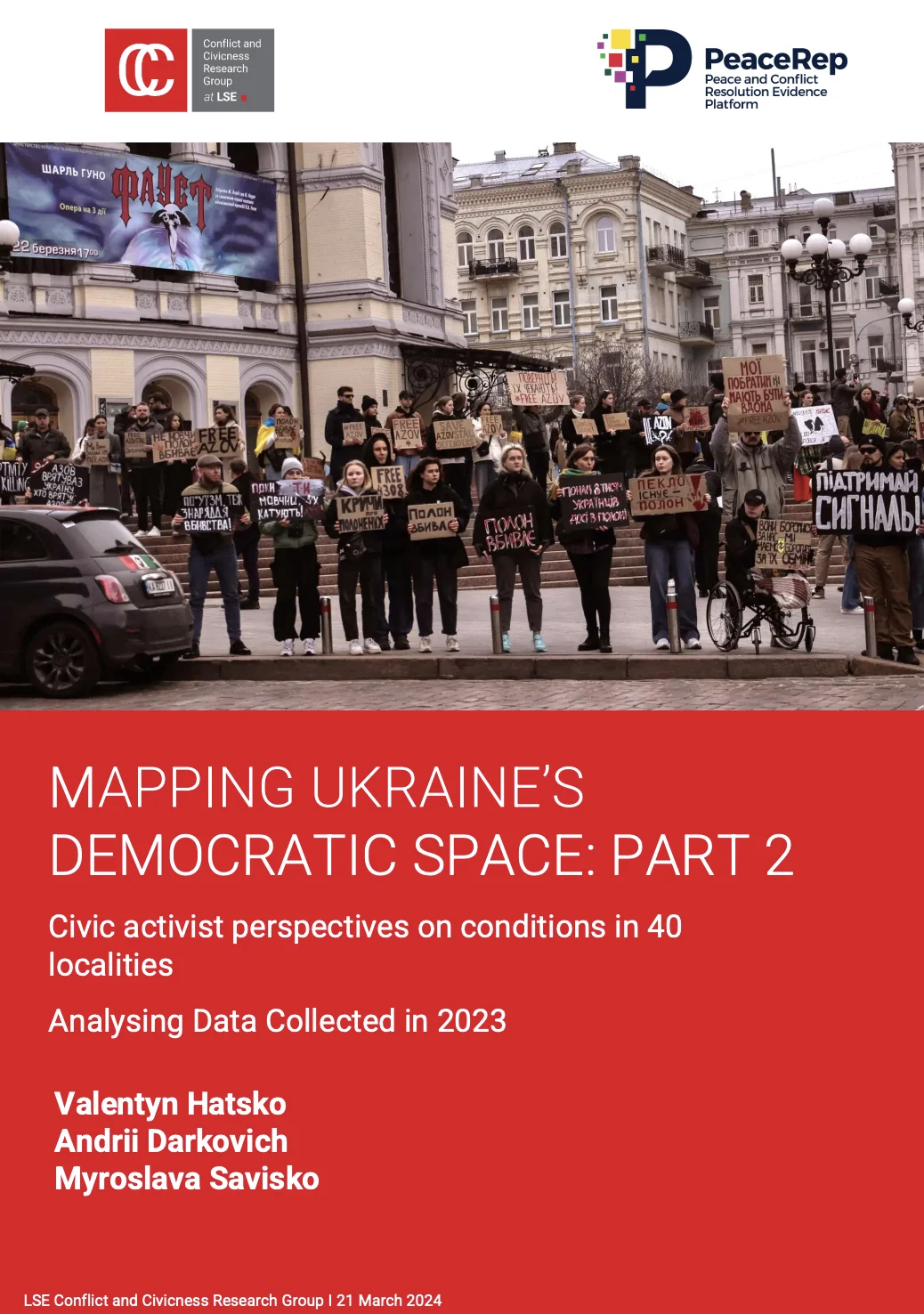
Mapping Ukraine’s Democratic Space: Part 2
Authors: Valentyn Hatsko, Myroslava Savisko, Andrii Darkovich
This report provides a comprehensive analysis aimed at identifying critical areas where immediate support is essential for enhancing the resilience of specific localities.

Trade Union Perspectives on the War in Ukraine
Author: Alena Ivanova
This report highlights the experience of trade unions in the on-going Russian war against Ukraine, and is based on the author’s engagements with trade unionists on the ground since the beginning of the full-scale invasion - primarily as a volunteer activist with the UK-based advocacy organisation, Ukraine Solidarity Campaign.
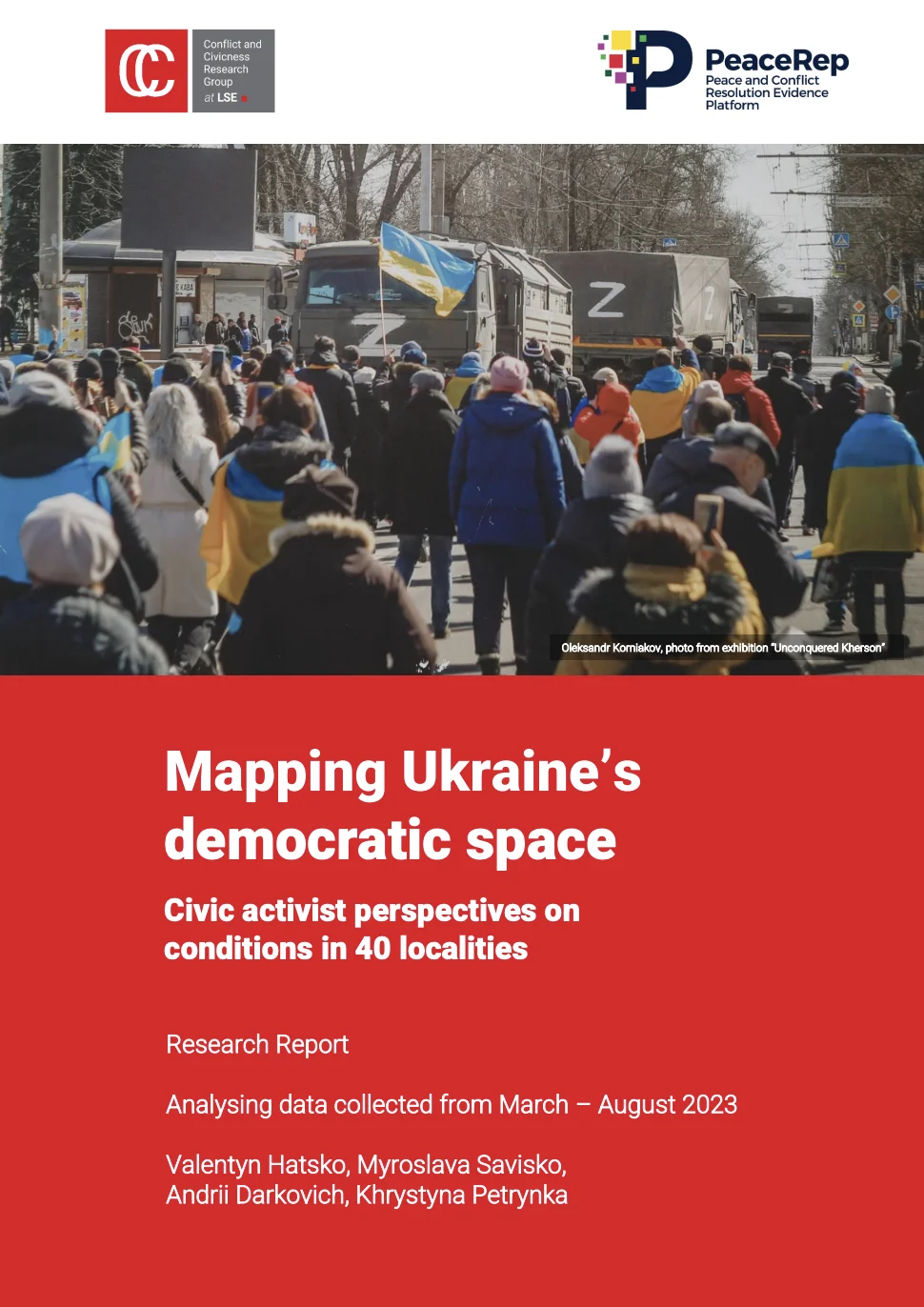
Mapping Ukraine’s democratic space in 40 localities
Authors: Valentyn Hatsko, Myroslava Savisko, Andrii Darkovich and Khrystyna Petrynka
Drawing on data from 118 local activists in 40 territorial hromadas, collected through surveys and interviews, the report delves into economic well-being, security conditions, and governance structures. It emphasizes the granular insights provided by local experts and employs a methodology linking meso and macro levels of analysis through a cross-country network of activist-experts.
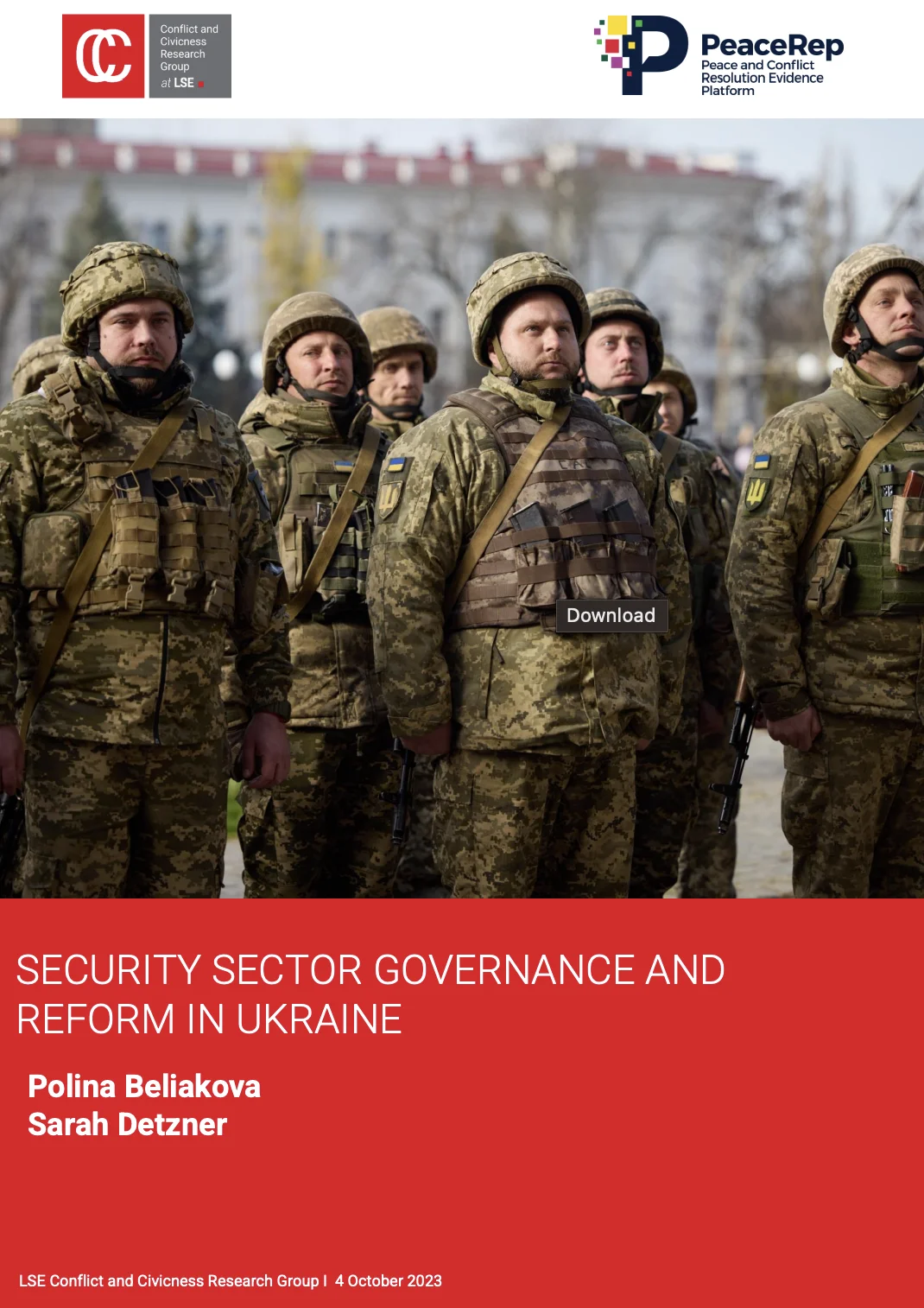
Security Sector Governance and Reform in Ukraine
Authors: Polina Beliakova and Sarah Detzner
This report delves into Ukraine’s security sector governance (SSG) and security sector reform (SSR), particularly during and post the conflict with Russia. It examines three key periods, analysing the country’s security system, successes, and challenges faced.
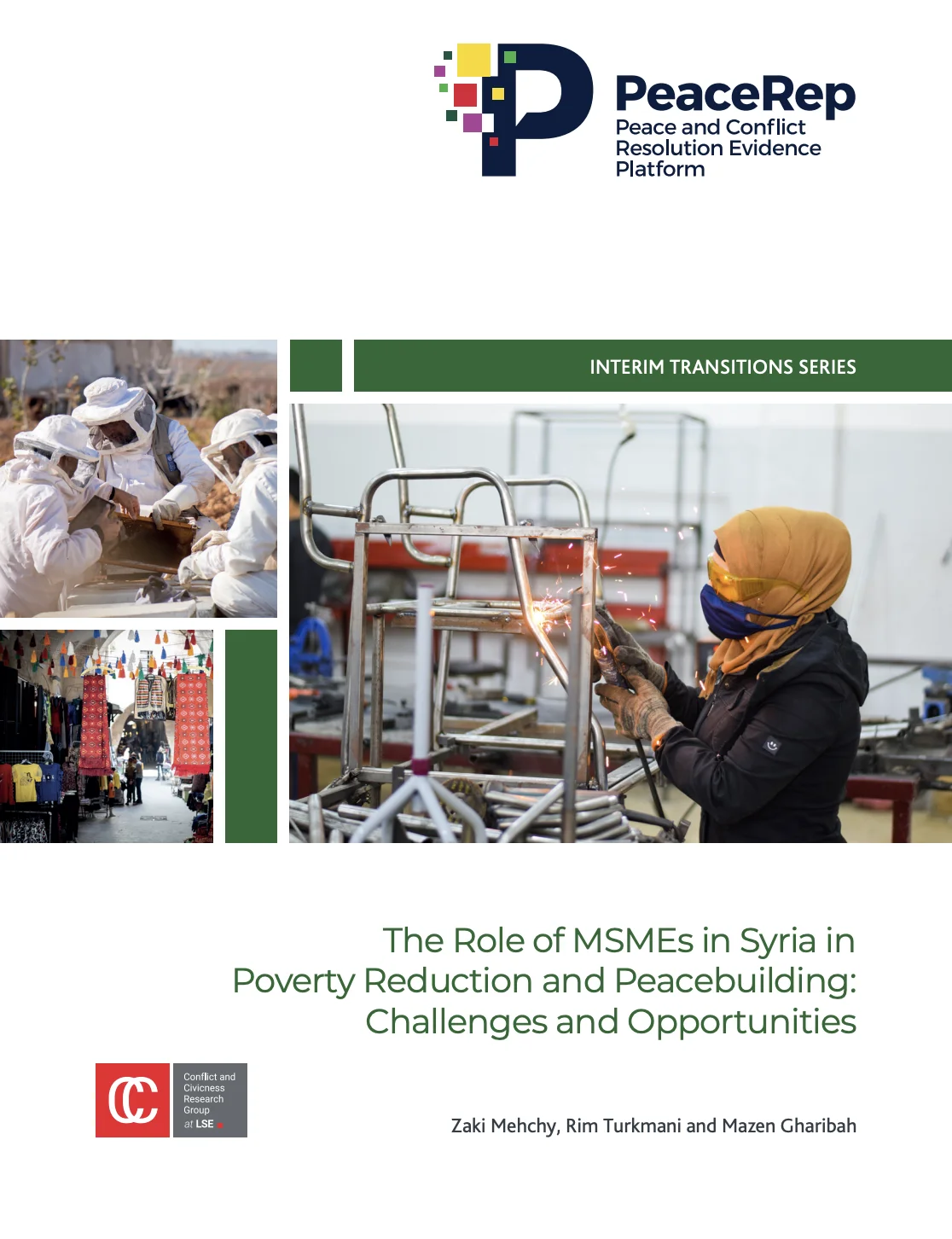
The Role of MSMEs in Syria in Poverty Reduction and Peacebuilding: Challenges and Opportunities
Authors: Zaki Mehchy, Rim Turkmani and Mazen Gharibah
This report delves into the current and potential contribution of Micro, Small, and Medium Enterprises (MSMEs) in Syria to poverty reduction and peacebuilding at the local level.

The Evolving Information Environment in Afghanistan
Authors: Salem Ibrahimi and Sam Vincent
The evolving information landscape in Afghanistan resembles a battlefield, with the Taliban waging an ideological and information war. This paper makes recommendations for international actors to mitigate the increasing isolation of Afghans from outside information and the fragmentation of the information environment.

In Search of Results: Incentives-Oriented Programs in Afghanistan, 2002-2021
Author: Aman Farahi
This paper examines the use of incentives for results in official development assistance programs in Afghanistan, and the programs’ mixed results. Whereas general conditionalities were shown to be largely ineffective, specific budget support results-based programs incentivized necessary reforms and development, as outlined in this paper with four key lessons learned.

Aid Coordination and Delivery in Afghanistan: Assessing Past and Current Architecture
Author: Naheed Sarabi
This paper examines aid provision in Afghanistan, both from a practitioner’s perspective on Afghanistan’s aid coordination history (including its structures, strengths, and challenges), and with a focus on current aid coordination gaps and opportunities for contributions by the international community to tackling current challenges.

Mapping Ukraine’s democratic space in 40 localities
Authors: Valentyn Hatsko, Myroslava Savisko, Andrii Darkovich and Khrystyna Petrynka
Drawing on data from 118 local activists in 40 territorial hromadas, collected through surveys and interviews, the report delves into economic well-being, security conditions, and governance structures. It emphasizes the granular insights provided by local experts and employs a methodology linking meso and macro levels of analysis through a cross-country network of activist-experts.

Security Sector Governance and Reform in Ukraine
Authors: Polina Beliakova and Sarah Detzner
This report delves into Ukraine’s security sector governance (SSG) and security sector reform (SSR), particularly during and post the conflict with Russia. It examines three key periods, analysing the country’s security system, successes, and challenges faced.

The Role of MSMEs in Syria in Poverty Reduction and Peacebuilding: Challenges and Opportunities
Authors: Zaki Mehchy, Rim Turkmani and Mazen Gharibah
This report delves into the current and potential contribution of Micro, Small, and Medium Enterprises (MSMEs) in Syria to poverty reduction and peacebuilding at the local level.

The Evolving Information Environment in Afghanistan
Authors: Salem Ibrahimi and Sam Vincent
The evolving information landscape in Afghanistan resembles a battlefield, with the Taliban waging an ideological and information war. This paper makes recommendations for international actors to mitigate the increasing isolation of Afghans from outside information and the fragmentation of the information environment.

In Search of Results: Incentives-Oriented Programs in Afghanistan, 2002-2021
Author: Aman Farahi
This paper examines the use of incentives for results in official development assistance programs in Afghanistan, and the programs’ mixed results. Whereas general conditionalities were shown to be largely ineffective, specific budget support results-based programs incentivized necessary reforms and development, as outlined in this paper with four key lessons learned.

Aid Coordination and Delivery in Afghanistan: Assessing Past and Current Architecture
Author: Naheed Sarabi
This paper examines aid provision in Afghanistan, both from a practitioner’s perspective on Afghanistan’s aid coordination history (including its structures, strengths, and challenges), and with a focus on current aid coordination gaps and opportunities for contributions by the international community to tackling current challenges.
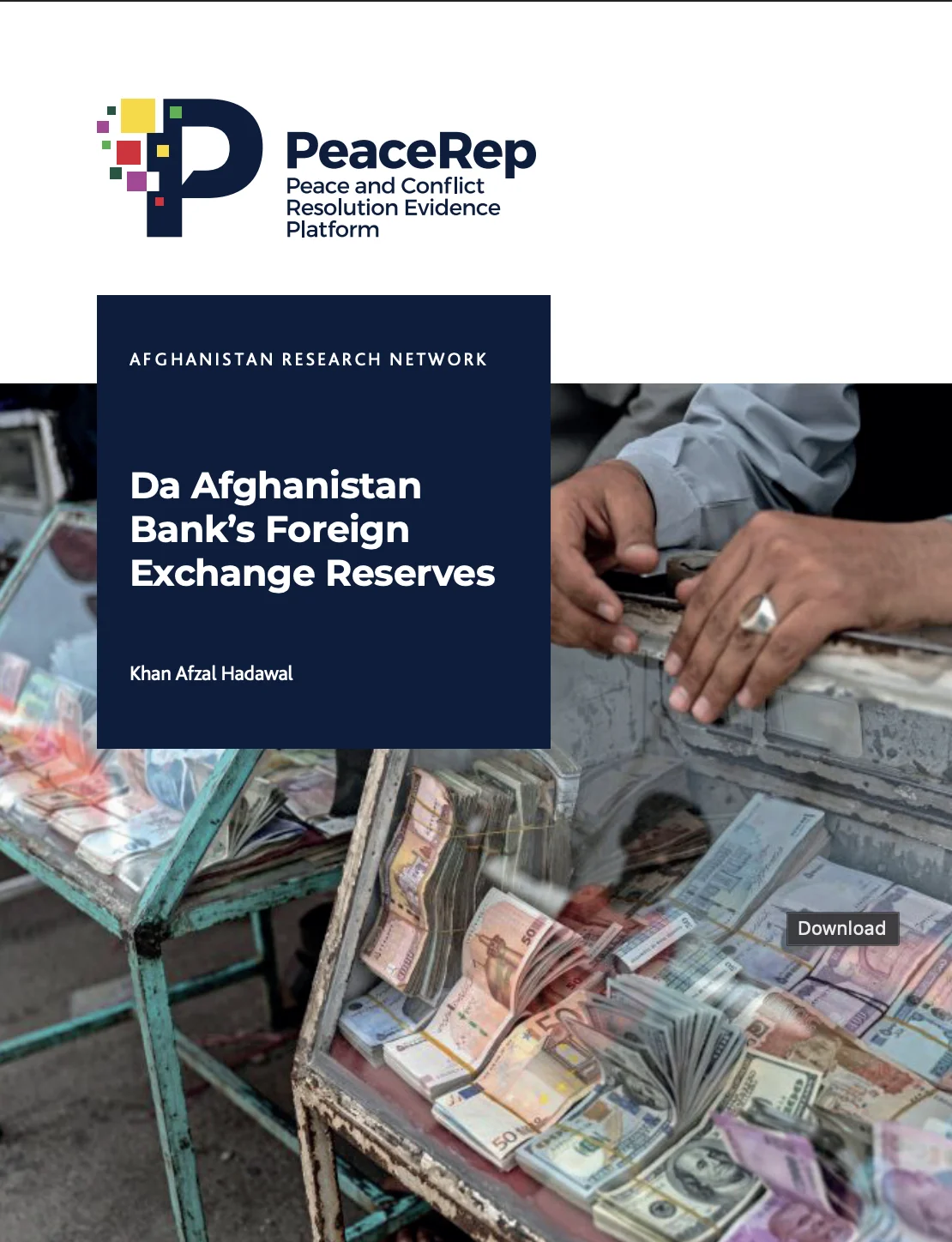
Da Afghanistan Bank’s Foreign Exchange Reserves
Author: Khan Afzal Hadawal
Following the Taliban takeover, the provision of humanitarian assistance by donors has played a crucial role in stabilizing the Afghan currency against major currencies and in alleviating economic burdens. This paper shares recommendations for the best use of the assets that make up Afghanistan’s Foreign Exchange Reserves.
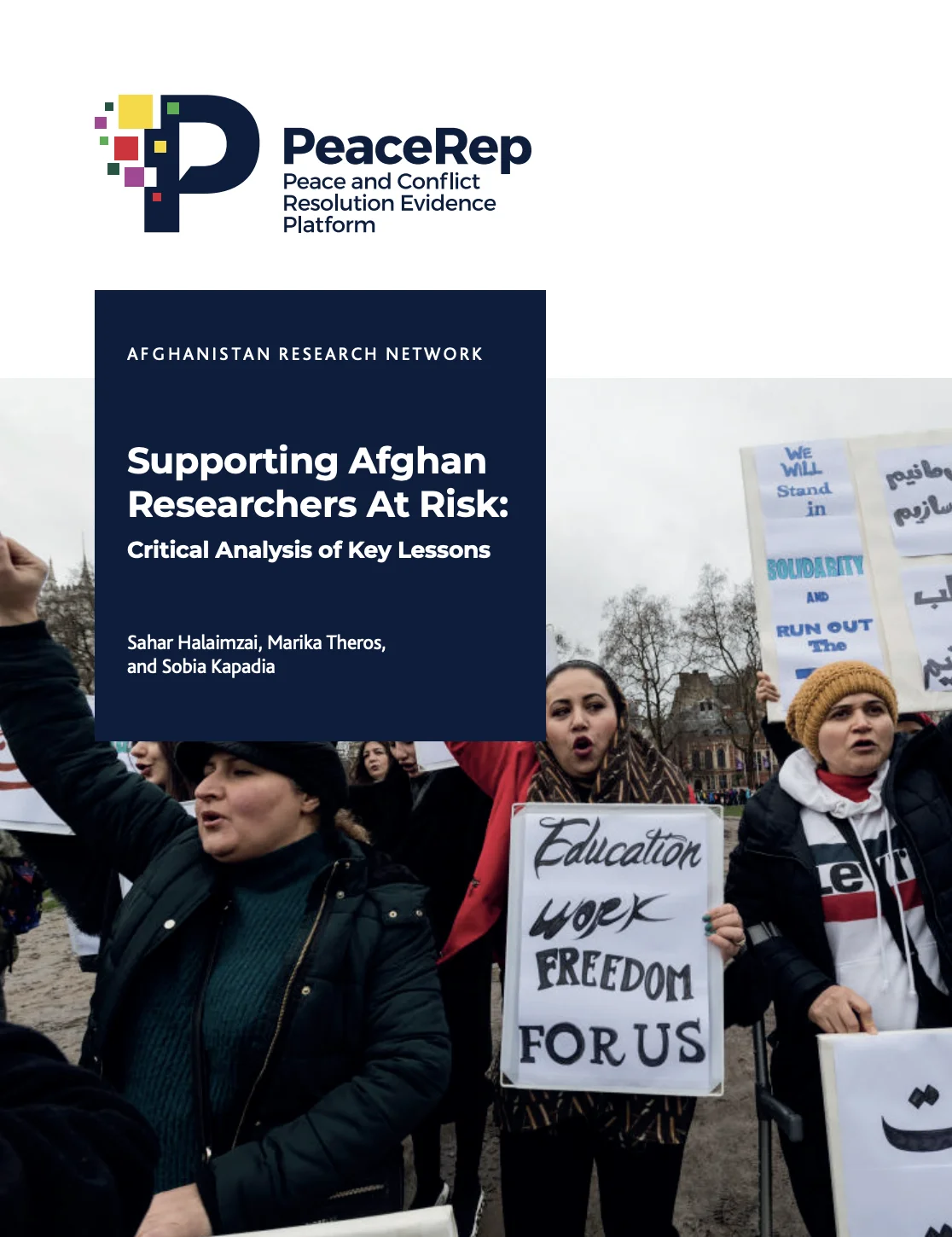
Supporting Afghan Researchers at Risk: Critical Analysis of Key Lessons
Authors: Sahar Halaimzai, Marika Theros, and Sobia Kapadia
This paper examines the Taliban’s takeover of Afghanistan and its education system, which has caused fear and self-censorship among scholars. International cooperation and funding for Afghan research have declined, threatening knowledge production. Given the uncertainty surrounding the future of academic research and the humanitarian crises in Afghanistan, this paper makes nine key recommendations to address the challenges faced by at-risk researchers.
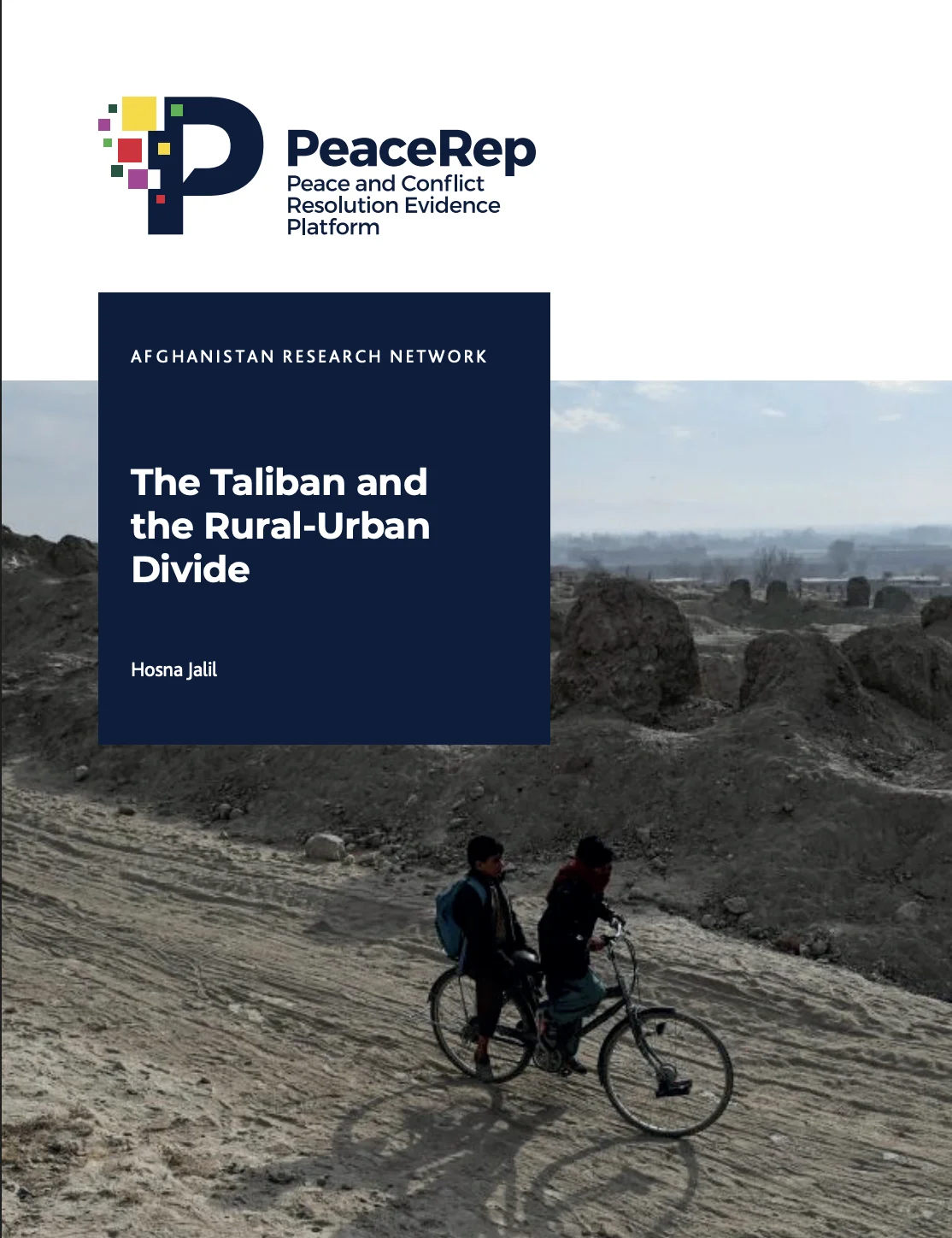
The Taliban and the Rural-Urban Divide
Author: Hosna Jalil
This reflection explores the nature of the rural-urban divide in Afghanistan in terms of economic, security, cultural-ideological factors. It then assesses how the Taliban exploited the rural-urban divide in building local support before asking whether the divide may now be undermining Taliban attempts to rule the country.

Humanitarian Aid Delivery in Contemporary Afghanistan
Author: Hila-Nawa Alam
This paper draws on evaluation data and analysis from Uplift Afghanistan’s efforts at delivering humanitarian assistance and sets out the lessons the organisation has learned about the strengths and weaknesses of different options.

Afghanistan’s Minerals: Past and Present
Authors: Ghazal Habibyar and Javed Noorani
The paper analyses the main factors that contribute towards the development of extractive industries, what their status was in post-2001 Afghanistan, and what the state of extractive industries was at the time the Republic collapsed. It then investigates the current governance structure and the potential risks that it imposes.

Managing Climate Change under the De Facto Authorities
Author: Idrees Malyar
The paper discusses the state of climate change-related work in Afghanistan prior to the collapse and offers a series of practical recommendations for resuming work on this issue in the current context.

Recognition of Gender Apartheid in Afghanistan Justified
Author: Metra Mehran
Drawing on Article II of the Apartheid Convention as the primary reference, this critical examination of the decrees issued by the Taliban since August 2021 reasons that their actions constitute 'Inhumane Acts' and are in violation of international law, providing evidence in support of legal and feminist efforts calling for the recognition of gender apartheid in Afghanistan.

What Could Shape the Conditions for Dialogue in Afghanistan?
Authors: Aref Dostyar and Zmarai Farahi
This paper asks: Are there ways to use dialogues to advance meaningful political objectives in Afghanistan’s current context? It scopes the necessary pre-conditions for an intra-Afghan dialogue process intended to build a vision of the country’s future and a roadmap to get there.
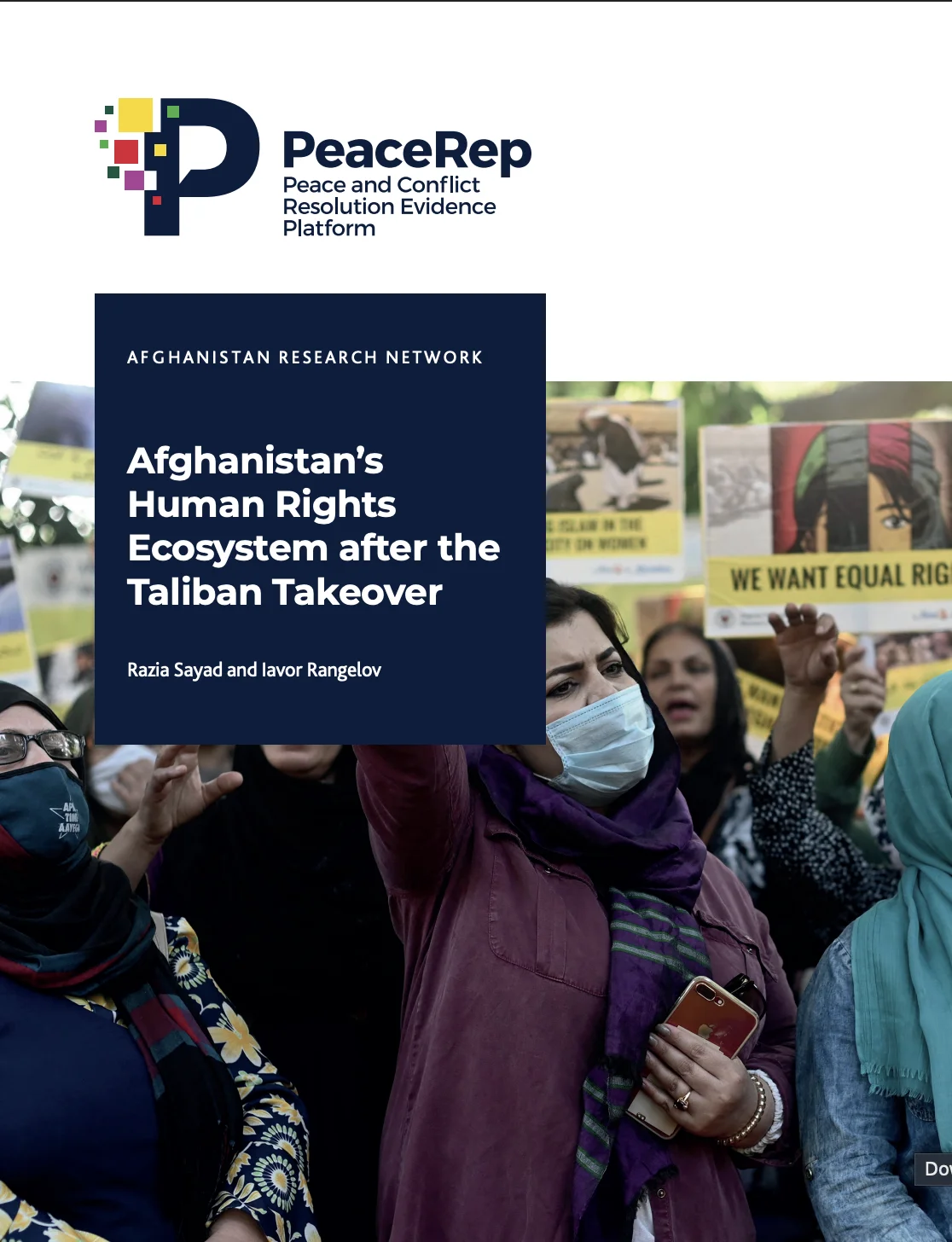
Afghanistan’s Human Rights Ecosystem after the Taliban Takeover
Authors: Razia Sayad and Iavor Rangelov
This report analyses Afghanistan’s emerging human rights ecosystem through the conceptual lens of a ‘civic ecosystem’, highlighting a range of human rights actors and approaches across multiple sectors and geographies.
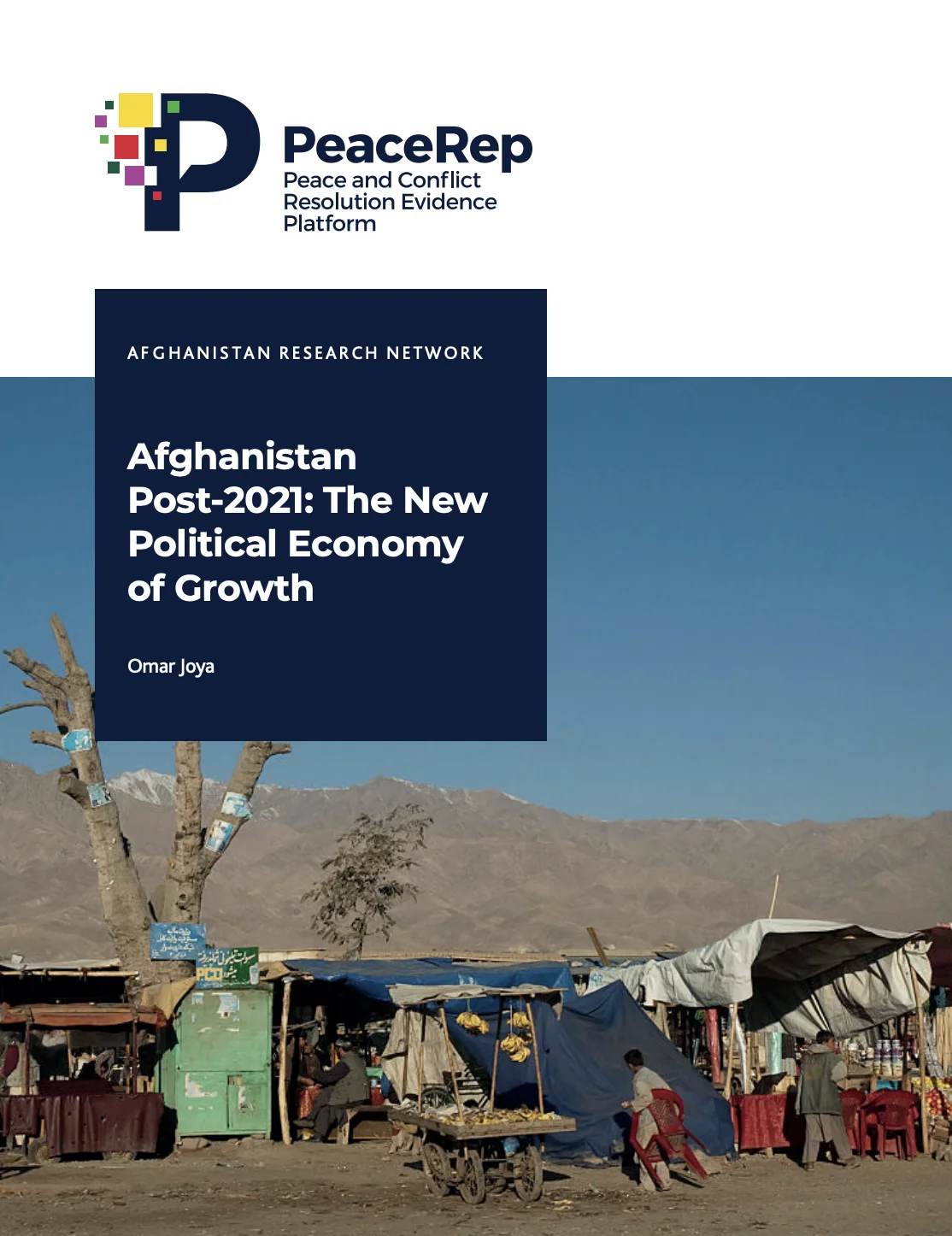
Afghanistan Post-2021: The New Political Economy of Growth
Author: Omar Joya
This report discusses the new political economy context in Afghanistan, its importance when improvements in conventional macroeconomic indicators in crisis situations are perceived as misleading, and practical implications for policy analysis.

Understanding Taliban Policies & Priorities from Budget Expenditures & Revenues
Authors: Salma Alokozai and Khalid Payenda
In seeking to discuss the Taliban’s spending patterns and the overall direction of the regime’s policies and priorities, this analysis aims to shed light the regime’s approach to human rights, economic stability, service delivery, security control ambitions, and how the people of Afghanistan and the wider world will be impacted.
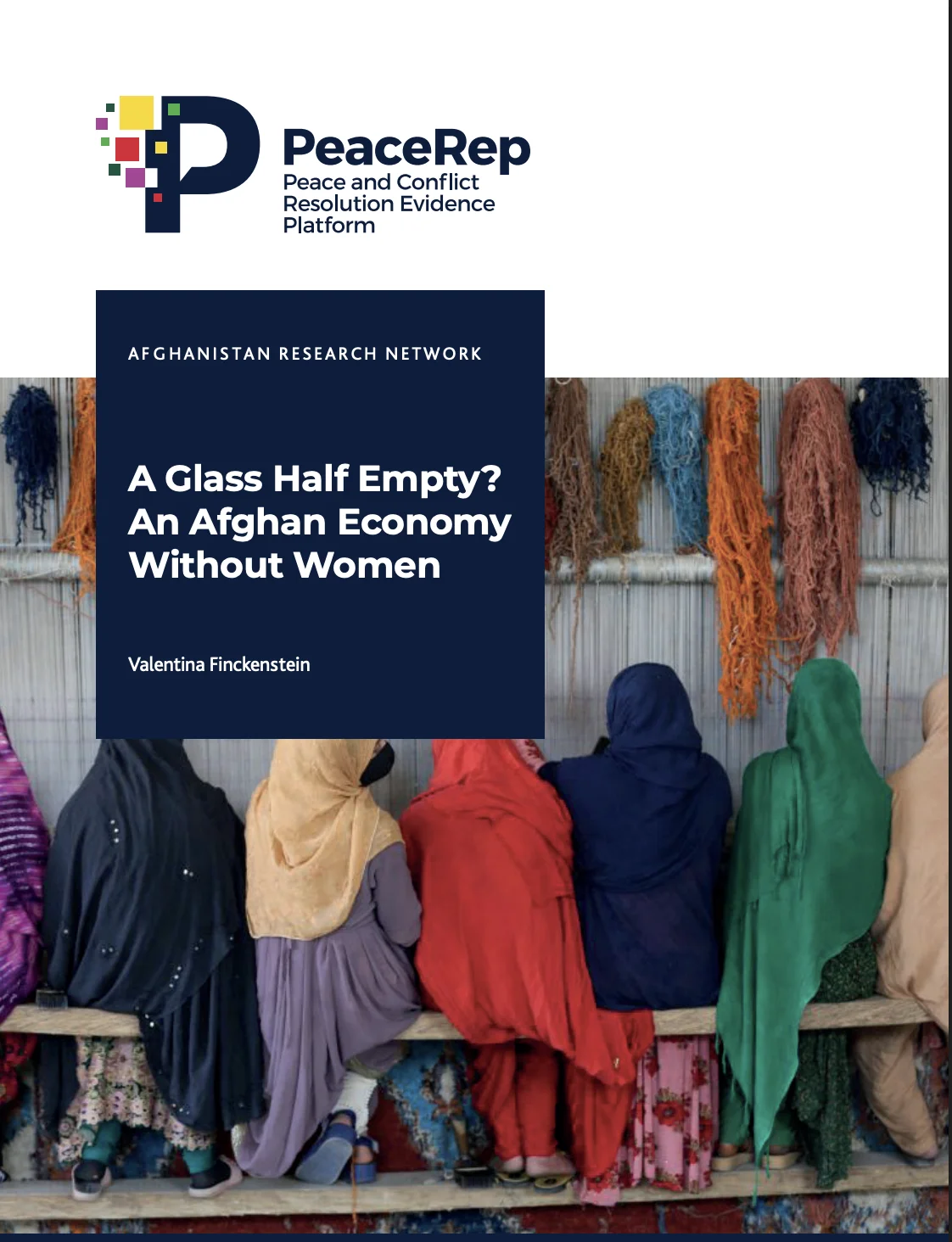
A Glass Half Empty? An Afghan Economy Without Women
Author: Valentina Finckenstein
This report addresses the Islamic Emirate’s policy of excluding Afghan women from an already-fragile economy, with significant economic ripple effects.
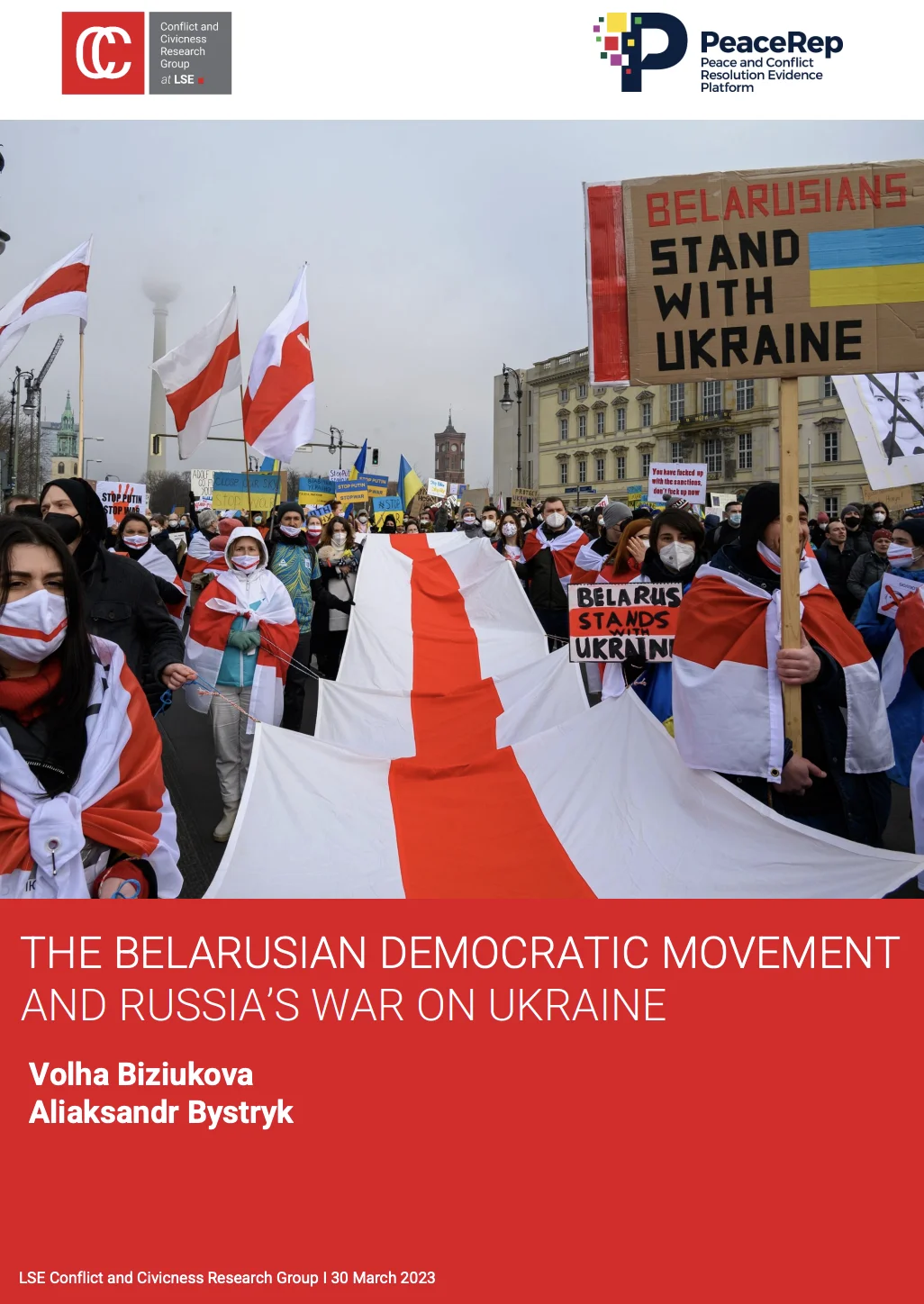
The Belarusian Democratic Movement and Russia’s War on Ukraine
Authors: Volha Biziukova and Aliaksandr Bystryk
This report offers a comprehensive analysis of the relationship between Belarus and the full-scale Russian invasion of Ukraine launched in February 2022, bringing to light the complexity of the Belarusian perspective on the on-going war.
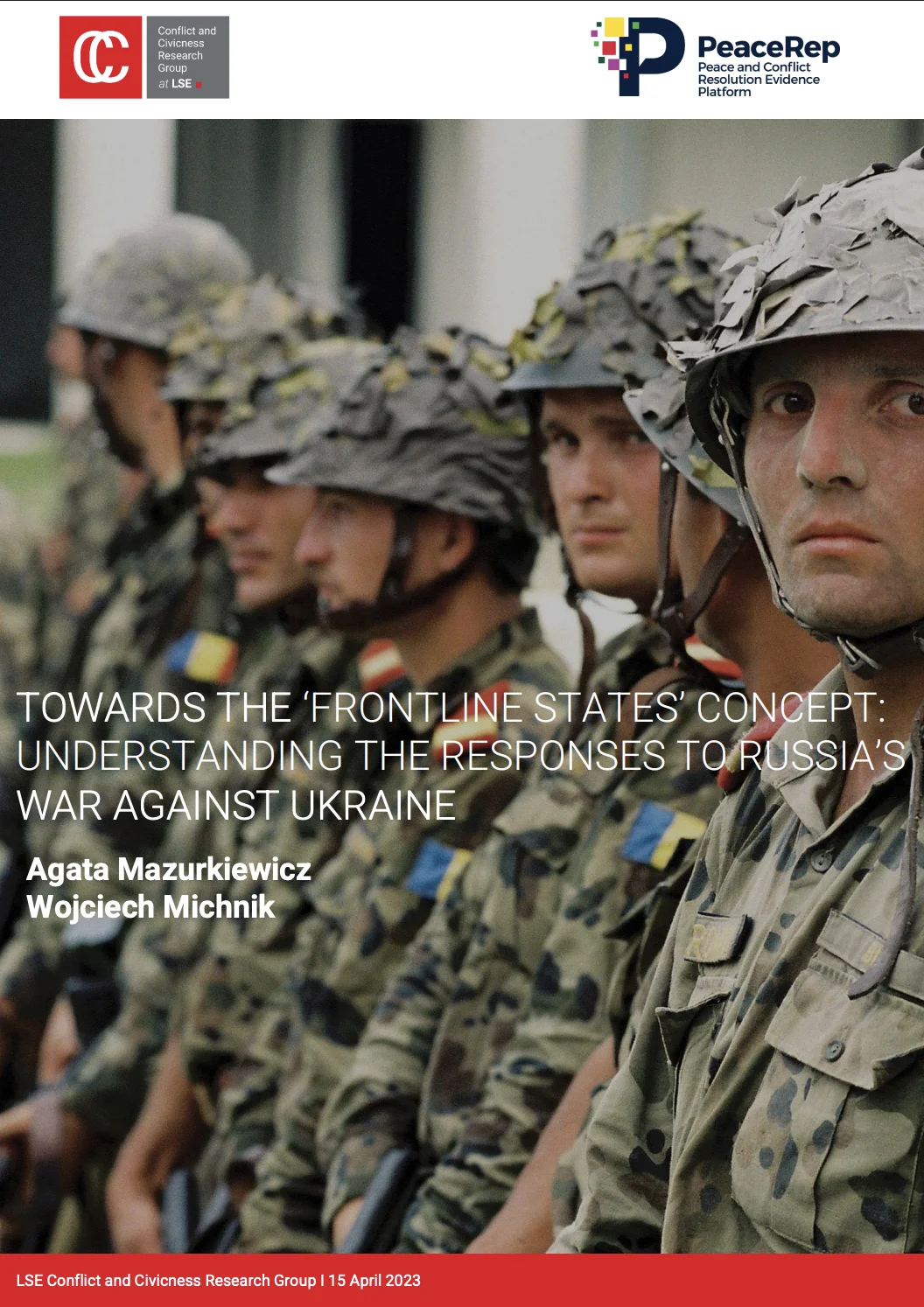
Towards the Frontline States Concept
Authors: Agata Mazurkiewicz and Wojciech Michnik
The focus in this paper rests on the 'frontline states' concept and its explanatory power. The states selected here (Estonia, Hungary, Latvia, Poland and Romania) for a brief analysis do not constitute a coherent group within 'frontline states' category, but rather are selected on a basis of their diversity.
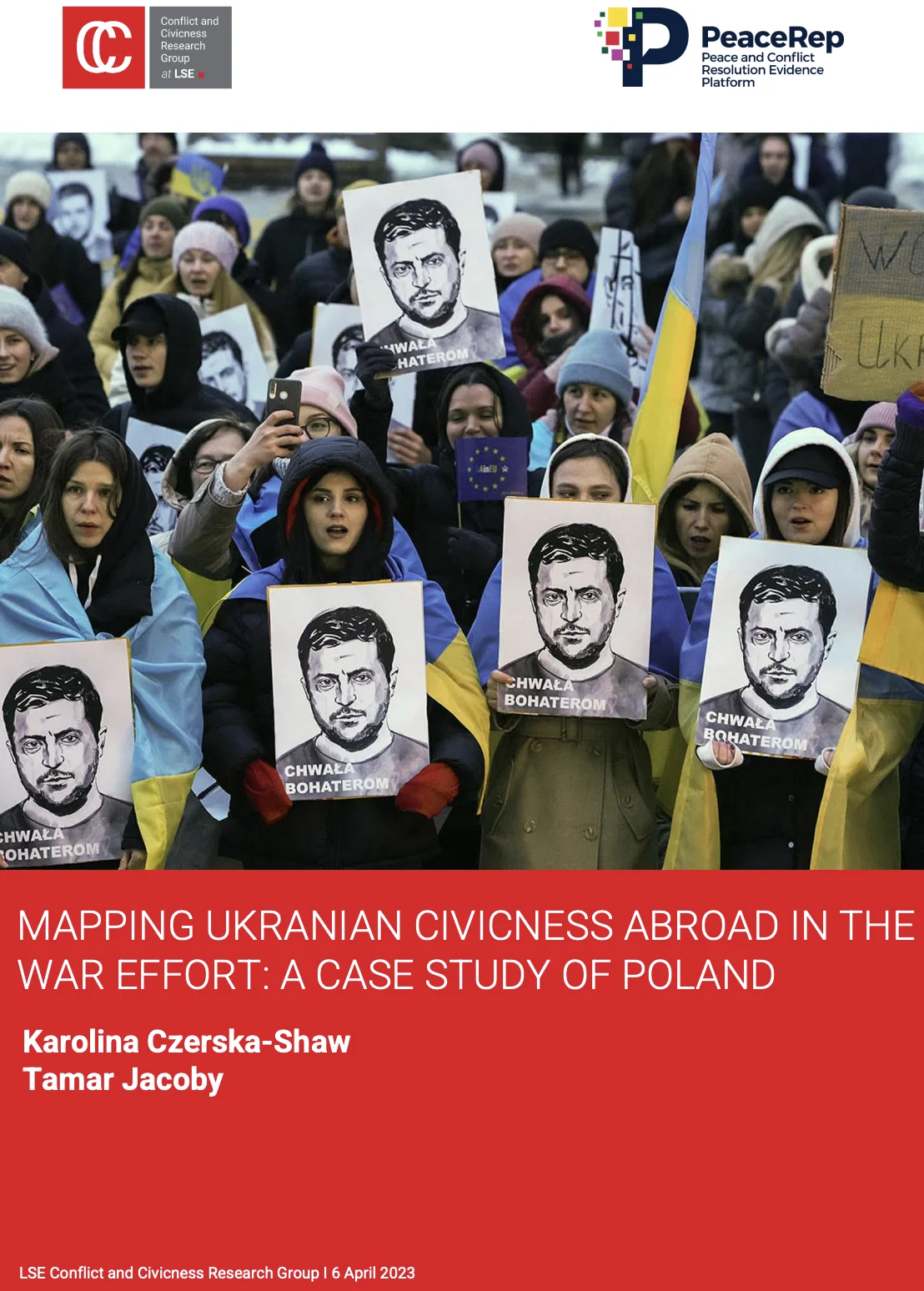
Mapping Ukrainian Civicness Abroad in the War Effort: A Case Study of Poland
Authors: Karolina Czerska-Shaw and Tamar Jacoby
This report is the outcome of research looking at 20 civil society organisations active in neighbouring Poland since the invasion of February 2022, including nine in-depth interviews and one focus group. The report offers some modest recommendations for policymakers seeking to leverage grassroots groups to strengthen democracy in post-war Ukraine, including by enhancing ties between Ukraine and the rest of Europe.

Islands of Agreement and Civility: Conflict Management in Russia’s War against Ukraine
Author: Cindy Wittke (Leibniz Institute for East and Southeast European Studies)
This report focuses on humanitarian negotiations and the potential for creating ‘islands of civility’ or ‘islands of agreement’ as tools for conflict and disaster management in the protracted Russian war against Ukraine; as well as their significance for enabling complex multi-dimensional negotiations and settlements on the local, regional, and international levels.

The Everyday Politics of Sudan’s Tax System: Identifying Prospects for Reform
Authors: Matthew Benson and Muzan Alneel with contributions from Raga Makawi
This report highlights the gap between de jure and de facto practices that govern tax policy in Sudan to reveal the everyday politics of taxation for most Sudanese citizens and tax collectors. This paper’s analysis reviews the legislation that governs Sudan’s revenue system, supplemented with interviews with civil servants, and presents an overview of findings from approximately 300 interviews with tax collectors and taxpayers.

Mapping Ukraine’s democratic space in 40 localities
Authors: Valentyn Hatsko, Myroslava Savisko, Andrii Darkovich and Khrystyna Petrynka
Drawing on data from 118 local activists in 40 territorial hromadas, collected through surveys and interviews, the report delves into economic well-being, security conditions, and governance structures. It emphasizes the granular insights provided by local experts and employs a methodology linking meso and macro levels of analysis through a cross-country network of activist-experts.

Security Sector Governance and Reform in Ukraine
Authors: Polina Beliakova and Sarah Detzner
This report delves into Ukraine’s security sector governance (SSG) and security sector reform (SSR), particularly during and post the conflict with Russia. It examines three key periods, analysing the country’s security system, successes, and challenges faced.

The Role of MSMEs in Syria in Poverty Reduction and Peacebuilding: Challenges and Opportunities
Authors: Zaki Mehchy, Rim Turkmani and Mazen Gharibah
This report delves into the current and potential contribution of Micro, Small, and Medium Enterprises (MSMEs) in Syria to poverty reduction and peacebuilding at the local level.

The Evolving Information Environment in Afghanistan
Authors: Salem Ibrahimi and Sam Vincent
The evolving information landscape in Afghanistan resembles a battlefield, with the Taliban waging an ideological and information war. This paper makes recommendations for international actors to mitigate the increasing isolation of Afghans from outside information and the fragmentation of the information environment.

In Search of Results: Incentives-Oriented Programs in Afghanistan, 2002-2021
Author: Aman Farahi
This paper examines the use of incentives for results in official development assistance programs in Afghanistan, and the programs’ mixed results. Whereas general conditionalities were shown to be largely ineffective, specific budget support results-based programs incentivized necessary reforms and development, as outlined in this paper with four key lessons learned.

Aid Coordination and Delivery in Afghanistan: Assessing Past and Current Architecture
Author: Naheed Sarabi
This paper examines aid provision in Afghanistan, both from a practitioner’s perspective on Afghanistan’s aid coordination history (including its structures, strengths, and challenges), and with a focus on current aid coordination gaps and opportunities for contributions by the international community to tackling current challenges.

Da Afghanistan Bank’s Foreign Exchange Reserves
Author: Khan Afzal Hadawal
Following the Taliban takeover, the provision of humanitarian assistance by donors has played a crucial role in stabilizing the Afghan currency against major currencies and in alleviating economic burdens. This paper shares recommendations for the best use of the assets that make up Afghanistan’s Foreign Exchange Reserves.

Supporting Afghan Researchers at Risk: Critical Analysis of Key Lessons
Authors: Sahar Halaimzai, Marika Theros, and Sobia Kapadia
This paper examines the Taliban’s takeover of Afghanistan and its education system, which has caused fear and self-censorship among scholars. International cooperation and funding for Afghan research have declined, threatening knowledge production. Given the uncertainty surrounding the future of academic research and the humanitarian crises in Afghanistan, this paper makes nine key recommendations to address the challenges faced by at-risk researchers.

The Taliban and the Rural-Urban Divide
Author: Hosna Jalil
This reflection explores the nature of the rural-urban divide in Afghanistan in terms of economic, security, cultural-ideological factors. It then assesses how the Taliban exploited the rural-urban divide in building local support before asking whether the divide may now be undermining Taliban attempts to rule the country.

Humanitarian Aid Delivery in Contemporary Afghanistan
Author: Hila-Nawa Alam
This paper draws on evaluation data and analysis from Uplift Afghanistan’s efforts at delivering humanitarian assistance and sets out the lessons the organisation has learned about the strengths and weaknesses of different options.

Afghanistan’s Minerals: Past and Present
Authors: Ghazal Habibyar and Javed Noorani
The paper analyses the main factors that contribute towards the development of extractive industries, what their status was in post-2001 Afghanistan, and what the state of extractive industries was at the time the Republic collapsed. It then investigates the current governance structure and the potential risks that it imposes.

Managing Climate Change under the De Facto Authorities
Author: Idrees Malyar
The paper discusses the state of climate change-related work in Afghanistan prior to the collapse and offers a series of practical recommendations for resuming work on this issue in the current context.

Recognition of Gender Apartheid in Afghanistan Justified
Author: Metra Mehran
Drawing on Article II of the Apartheid Convention as the primary reference, this critical examination of the decrees issued by the Taliban since August 2021 reasons that their actions constitute 'Inhumane Acts' and are in violation of international law, providing evidence in support of legal and feminist efforts calling for the recognition of gender apartheid in Afghanistan.

What Could Shape the Conditions for Dialogue in Afghanistan?
Authors: Aref Dostyar and Zmarai Farahi
This paper asks: Are there ways to use dialogues to advance meaningful political objectives in Afghanistan’s current context? It scopes the necessary pre-conditions for an intra-Afghan dialogue process intended to build a vision of the country’s future and a roadmap to get there.

Afghanistan’s Human Rights Ecosystem after the Taliban Takeover
Authors: Razia Sayad and Iavor Rangelov
This report analyses Afghanistan’s emerging human rights ecosystem through the conceptual lens of a ‘civic ecosystem’, highlighting a range of human rights actors and approaches across multiple sectors and geographies.

Afghanistan Post-2021: The New Political Economy of Growth
Author: Omar Joya
This report discusses the new political economy context in Afghanistan, its importance when improvements in conventional macroeconomic indicators in crisis situations are perceived as misleading, and practical implications for policy analysis.

Understanding Taliban Policies & Priorities from Budget Expenditures & Revenues
Authors: Salma Alokozai and Khalid Payenda
In seeking to discuss the Taliban’s spending patterns and the overall direction of the regime’s policies and priorities, this analysis aims to shed light the regime’s approach to human rights, economic stability, service delivery, security control ambitions, and how the people of Afghanistan and the wider world will be impacted.

A Glass Half Empty? An Afghan Economy Without Women
Author: Valentina Finckenstein
This report addresses the Islamic Emirate’s policy of excluding Afghan women from an already-fragile economy, with significant economic ripple effects.

The Belarusian Democratic Movement and Russia’s War on Ukraine
Authors: Volha Biziukova and Aliaksandr Bystryk
This report offers a comprehensive analysis of the relationship between Belarus and the full-scale Russian invasion of Ukraine launched in February 2022, bringing to light the complexity of the Belarusian perspective on the on-going war.

Towards the Frontline States Concept
Authors: Agata Mazurkiewicz and Wojciech Michnik
The focus in this paper rests on the 'frontline states' concept and its explanatory power. The states selected here (Estonia, Hungary, Latvia, Poland and Romania) for a brief analysis do not constitute a coherent group within 'frontline states' category, but rather are selected on a basis of their diversity.

Mapping Ukrainian Civicness Abroad in the War Effort: A Case Study of Poland
Authors: Karolina Czerska-Shaw and Tamar Jacoby
This report is the outcome of research looking at 20 civil society organisations active in neighbouring Poland since the invasion of February 2022, including nine in-depth interviews and one focus group. The report offers some modest recommendations for policymakers seeking to leverage grassroots groups to strengthen democracy in post-war Ukraine, including by enhancing ties between Ukraine and the rest of Europe.

Islands of Agreement and Civility: Conflict Management in Russia’s War against Ukraine
Author: Cindy Wittke (Leibniz Institute for East and Southeast European Studies)
This report focuses on humanitarian negotiations and the potential for creating ‘islands of civility’ or ‘islands of agreement’ as tools for conflict and disaster management in the protracted Russian war against Ukraine; as well as their significance for enabling complex multi-dimensional negotiations and settlements on the local, regional, and international levels.

The Everyday Politics of Sudan’s Tax System: Identifying Prospects for Reform
Authors: Matthew Benson and Muzan Alneel with contributions from Raga Makawi
This report highlights the gap between de jure and de facto practices that govern tax policy in Sudan to reveal the everyday politics of taxation for most Sudanese citizens and tax collectors. This paper’s analysis reviews the legislation that governs Sudan’s revenue system, supplemented with interviews with civil servants, and presents an overview of findings from approximately 300 interviews with tax collectors and taxpayers.

Da Afghanistan Bank’s Foreign Exchange Reserves
Author: Khan Afzal Hadawal
Following the Taliban takeover, the provision of humanitarian assistance by donors has played a crucial role in stabilizing the Afghan currency against major currencies and in alleviating economic burdens. This paper shares recommendations for the best use of the assets that make up Afghanistan’s Foreign Exchange Reserves.

Supporting Afghan Researchers at Risk: Critical Analysis of Key Lessons
Authors: Sahar Halaimzai, Marika Theros, and Sobia Kapadia
This paper examines the Taliban’s takeover of Afghanistan and its education system, which has caused fear and self-censorship among scholars. International cooperation and funding for Afghan research have declined, threatening knowledge production. Given the uncertainty surrounding the future of academic research and the humanitarian crises in Afghanistan, this paper makes nine key recommendations to address the challenges faced by at-risk researchers.

The Taliban and the Rural-Urban Divide
Author: Hosna Jalil
This reflection explores the nature of the rural-urban divide in Afghanistan in terms of economic, security, cultural-ideological factors. It then assesses how the Taliban exploited the rural-urban divide in building local support before asking whether the divide may now be undermining Taliban attempts to rule the country.

Humanitarian Aid Delivery in Contemporary Afghanistan
Author: Hila-Nawa Alam
This paper draws on evaluation data and analysis from Uplift Afghanistan’s efforts at delivering humanitarian assistance and sets out the lessons the organisation has learned about the strengths and weaknesses of different options.

Afghanistan’s Minerals: Past and Present
Authors: Ghazal Habibyar and Javed Noorani
The paper analyses the main factors that contribute towards the development of extractive industries, what their status was in post-2001 Afghanistan, and what the state of extractive industries was at the time the Republic collapsed. It then investigates the current governance structure and the potential risks that it imposes.

Managing Climate Change under the De Facto Authorities
Author: Idrees Malyar
The paper discusses the state of climate change-related work in Afghanistan prior to the collapse and offers a series of practical recommendations for resuming work on this issue in the current context.

Recognition of Gender Apartheid in Afghanistan Justified
Author: Metra Mehran
Drawing on Article II of the Apartheid Convention as the primary reference, this critical examination of the decrees issued by the Taliban since August 2021 reasons that their actions constitute 'Inhumane Acts' and are in violation of international law, providing evidence in support of legal and feminist efforts calling for the recognition of gender apartheid in Afghanistan.

What Could Shape the Conditions for Dialogue in Afghanistan?
Authors: Aref Dostyar and Zmarai Farahi
This paper asks: Are there ways to use dialogues to advance meaningful political objectives in Afghanistan’s current context? It scopes the necessary pre-conditions for an intra-Afghan dialogue process intended to build a vision of the country’s future and a roadmap to get there.

Afghanistan’s Human Rights Ecosystem after the Taliban Takeover
Authors: Razia Sayad and Iavor Rangelov
This report analyses Afghanistan’s emerging human rights ecosystem through the conceptual lens of a ‘civic ecosystem’, highlighting a range of human rights actors and approaches across multiple sectors and geographies.

Afghanistan Post-2021: The New Political Economy of Growth
Author: Omar Joya
This report discusses the new political economy context in Afghanistan, its importance when improvements in conventional macroeconomic indicators in crisis situations are perceived as misleading, and practical implications for policy analysis.

Understanding Taliban Policies & Priorities from Budget Expenditures & Revenues
Authors: Salma Alokozai and Khalid Payenda
In seeking to discuss the Taliban’s spending patterns and the overall direction of the regime’s policies and priorities, this analysis aims to shed light the regime’s approach to human rights, economic stability, service delivery, security control ambitions, and how the people of Afghanistan and the wider world will be impacted.

A Glass Half Empty? An Afghan Economy Without Women
Author: Valentina Finckenstein
This report addresses the Islamic Emirate’s policy of excluding Afghan women from an already-fragile economy, with significant economic ripple effects.

The Belarusian Democratic Movement and Russia’s War on Ukraine
Authors: Volha Biziukova and Aliaksandr Bystryk
This report offers a comprehensive analysis of the relationship between Belarus and the full-scale Russian invasion of Ukraine launched in February 2022, bringing to light the complexity of the Belarusian perspective on the on-going war.

Towards the Frontline States Concept
Authors: Agata Mazurkiewicz and Wojciech Michnik
The focus in this paper rests on the 'frontline states' concept and its explanatory power. The states selected here (Estonia, Hungary, Latvia, Poland and Romania) for a brief analysis do not constitute a coherent group within 'frontline states' category, but rather are selected on a basis of their diversity.

Mapping Ukrainian Civicness Abroad in the War Effort: A Case Study of Poland
Authors: Karolina Czerska-Shaw and Tamar Jacoby
This report is the outcome of research looking at 20 civil society organisations active in neighbouring Poland since the invasion of February 2022, including nine in-depth interviews and one focus group. The report offers some modest recommendations for policymakers seeking to leverage grassroots groups to strengthen democracy in post-war Ukraine, including by enhancing ties between Ukraine and the rest of Europe.

Islands of Agreement and Civility: Conflict Management in Russia’s War against Ukraine
Author: Cindy Wittke (Leibniz Institute for East and Southeast European Studies)
This report focuses on humanitarian negotiations and the potential for creating ‘islands of civility’ or ‘islands of agreement’ as tools for conflict and disaster management in the protracted Russian war against Ukraine; as well as their significance for enabling complex multi-dimensional negotiations and settlements on the local, regional, and international levels.

The Everyday Politics of Sudan’s Tax System: Identifying Prospects for Reform
Authors: Matthew Benson and Muzan Alneel with contributions from Raga Makawi
This report highlights the gap between de jure and de facto practices that govern tax policy in Sudan to reveal the everyday politics of taxation for most Sudanese citizens and tax collectors. This paper’s analysis reviews the legislation that governs Sudan’s revenue system, supplemented with interviews with civil servants, and presents an overview of findings from approximately 300 interviews with tax collectors and taxpayers.

Market economics in an all-out war? Assessing economic risks to the Ukrainian war effort
Author: Luke Cooper
This report offers a summary analysis of the acute economic challenges facing the Ukrainian war effort and critically reviews the current policy agenda of the Government of Ukraine.
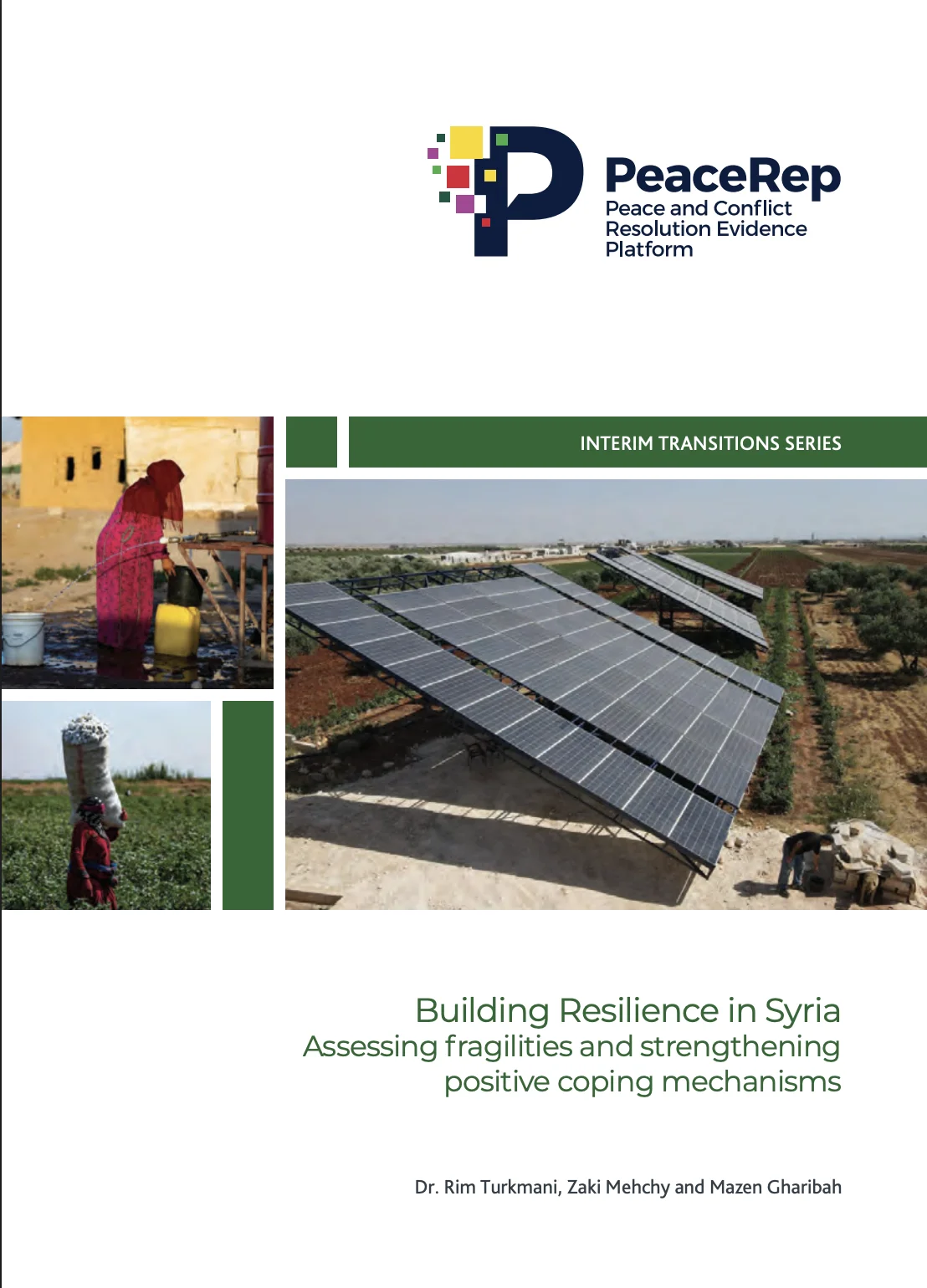
Building Resilience in Syria: Fragilities and coping mechanisms
Authors: Dr Rim Turkmani, Zaki Mehchy and Mazen Gharibah
This report uses a resilience capacities framework to identify dominant fragilities, risks, and crises across Syria, and to assess political and practical obstacles to delivering principled aid. The aim of the research is to explore the coping and resilience mechanisms that communities are enacting, drawing on extensive primary and secondary data from the LSE-based Mapping Syria project across three main areas of control in Syria: the northeast, the northwest, and government-controlled areas.

Authors: Susanne Jaspars, Catriona Murdoch and Nisar Majid
This paper explores the role of digital technologies in the violation and application of humanitarian law, and its consequences for famine risk and prevention. The link between famine, digital technologies and humanitarian law and key issues are addressed.
This group was formerly known as the Conflict Research Programme

October 2022
By Zedoun Alzoubi, Omar Abdulaziz Hallaj, Sohaib Al Zoub and Jadd Hallaj.

Local agreements - an introduction to the special issue
February 2022
by Mary Kaldor, Marika Theros and Rim Turkmani
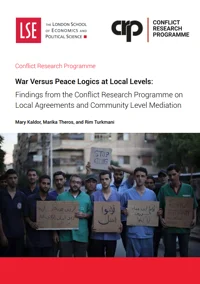
November 2021
by Mary Kaldor, Marika Theros and Rim Turkmani

Security and Justice Reform: Findings from the Conflict Research Programme
November 2021
by Sarah Detzner and Mary Kaldor

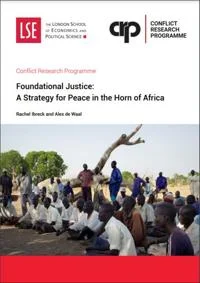
Foundational justice: a strategy for peace in the Horn of Africa
August 2021
by Rachel Ibreck and Alex de Waal
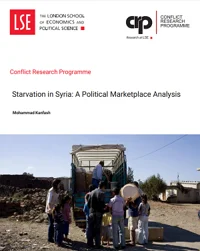
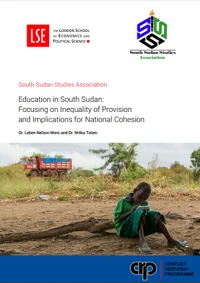
Education in South Sudan: focusing on inequality of provision and implications for national cohesion
July 2021
by Dr. Leben Nelson Moro and Dr. Nitika Tolani
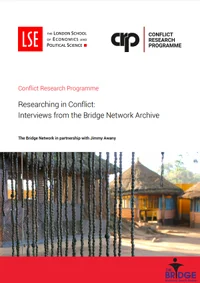
Researching in Conflict: Interviews from the Bridge Network Archive
July 2021
The Bridge Network in partnership with Jimmy Awany
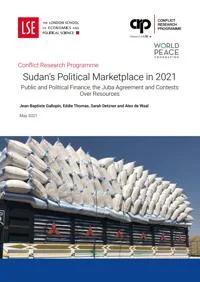
Sudan's Political Marketplace in 2021
May 2021
by Jean-Baptiste Gallopin, Eddie Thomas, Sarah Detzner and Alex de Waal
Available in English and Arabic


Chief's Courts, Hunger, and Improving Humanitarian Programming in South Sudan
March 2021
by Chris Newton, Bol Mawien, Chirrilo Madut, Elizabeth Gray, and Naomi R. Pendle

The War(s) in South Sudan: local dimensions of conflict, governance and the political marketplace
February 2021
by Flora McCrone

Education, Conflict, and Civicness in South Sudan: An Introduction
February 2021
by Julia Duany, Rebecca Lorins, and Edward Thomas
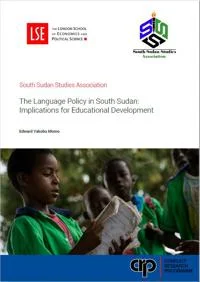
The Language Policy in South Sudan: Implications for Educational Development
February 2021
by Edward Yakobo Momo
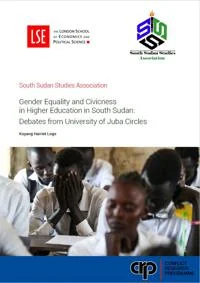
February 2021
by Kuyang Harriet Logo
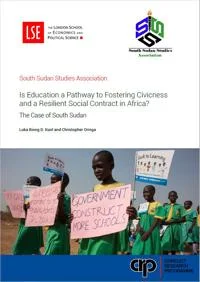
February 2021
by Luka Biong D. Kuol and Christopher Oringa


Bridging Divisions in a War-torn State: Reflections on education and civicness in South Sudan
February 2021
by Rachel Ibreck, Naomi Pendle, Alice Robinson and the Bridge Network



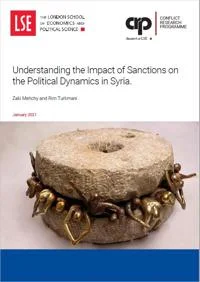

Destructive Creations: Social-Spatial Transformations in Contemporary Baghdad
February 2021
by Omar Sirri
Confusion and Contention: Understanding the Failings of Decentralisation in Iraq
January 2021
by Ali Al-Mawlawi and Sajad Jiyad
Understanding the impact of sanctions on the political dynamics in Syria
January 2021
by Zaki Mehchy and Rim Turkmani
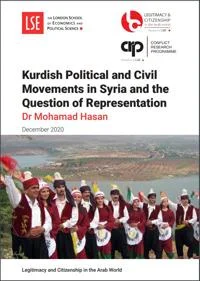
Kurdish Political and Civil Movements in Syria and the Question of Representation
December 2020
by Dr Mohamed Hasan

Violence, crime and gender in South Sudan: reflections from the field on militias and gangs
November 2020
by Alicia Elaine Luedke
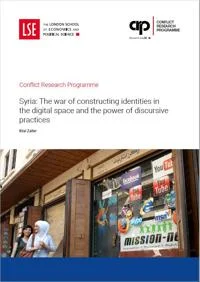
Syria: the war of constructing identities in the digital space and the power of discursive practices
November 2020
by Bilal Zaiter
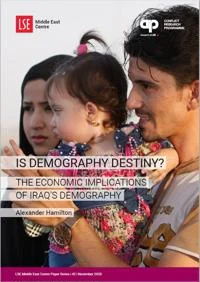
Is demography destiny? The economic implications of Iraq's demography
November 2020
by Alexander Hamilton
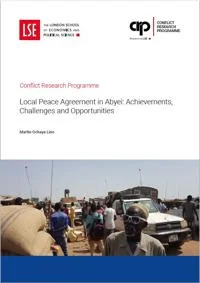
Local peace agreement in Abyei: Achievements, Challenges and Opportunities
September 2020
by Martin Lino Ochaya

July 2020
by the Conflict Research Programme
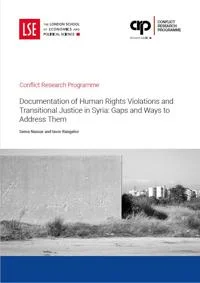
August 2020
by Sema Nassar and Iavor Rangelov
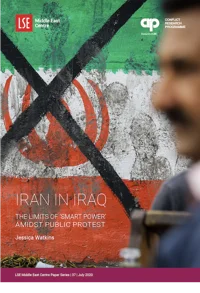
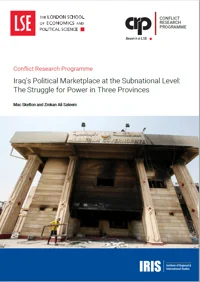
Iraq’s political marketplace at the subnational level: the struggle for power in three provinces
June 2020
by Mac Skelton and Zmkan Ali Saleem
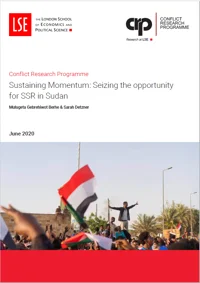
Sustaining momentum: Seizing the opportunity for SSR in Sudan
June 2020
by Mulugeta Gebrehiwot Berhe and Sarah Detzner
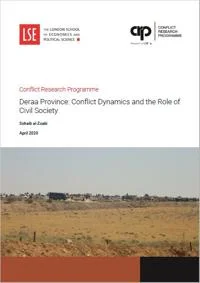
Deraa Province: Conflict Dynamics and the Role of Civil Society
April 2020
by Sohaib al-Zoabi
Also available to read in Arabic.
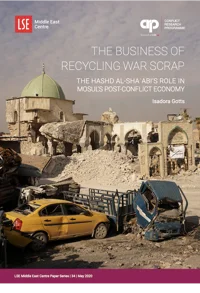
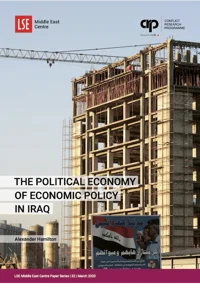
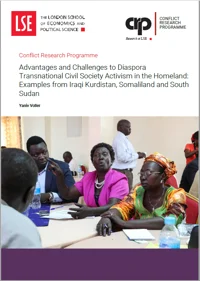

Food and Power in Somalia: Business as Usual?
January 2020
by Susanne Jaspars, Guhad M. Adan and Nisar Majid
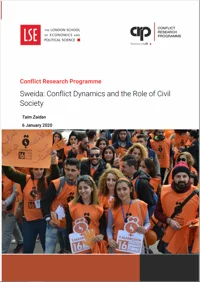
Sweida: Conflict Dynamics and the Role of Civil Society
January 2020
by Taim Zaidan
Also available to read in Arabic.
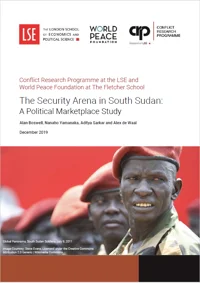
The Security Arena in South Sudan: A Political Marketplace Study
December 2019
by Alan Boswell, Nanaho Yamanaka, Aditya Sarkar and Alex de Waal
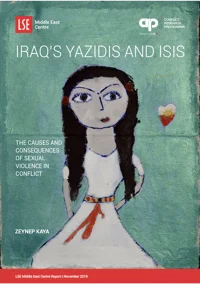
Iraq's Yazidis and ISIS: The Causes and Consequences of Sexual Violence in Conflict
November 2019
by Zeynep Kaya

November 2019
by Hayder Al-Khafaji


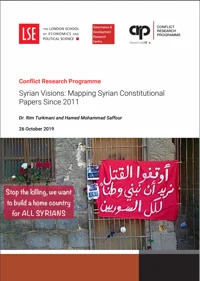
Syrian Visions: Mapping Syrian Constitutional Papers since 2011
October 2019
by Rim Turkmani and Hamed Mohammad Saffour

An Analysis of Commonalities and Divergences of Syrian Constitutional Papers since 2011
October 2019
by Hamed Mohammad Saffour, Rim Turkmani and Mazen Gharibah

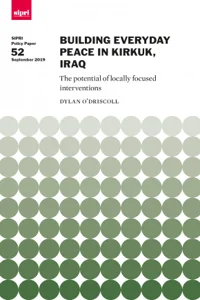
Building everyday peace in Kirkuk, Iraq: The potential of locally focused interventions
September 2019
by Dylan O'Driscoll
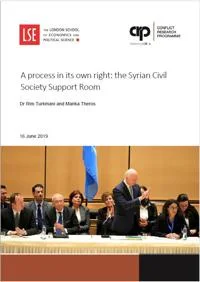
A process in its own right: the Syrian Civil Society Support Room
June 2019
by Rim Turkmani and Marika Theros


Satellite Sectarianisation or Plain Old Partisanship? Inciting Violence in the Arab Mainstream Media
April 2019
by Jessica Watkins

March 2019
by Kasper Hoffmann, Mariève Pouliot and Godefroid Muzalia
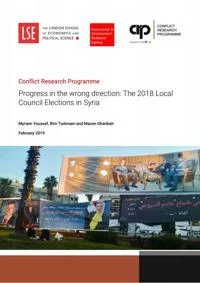
Progress in the wrong direction: The 2018 Local Council Elections in Syria
February 2019
by Rim Turkmani, Mazen Gharibah and Myriam Youssef
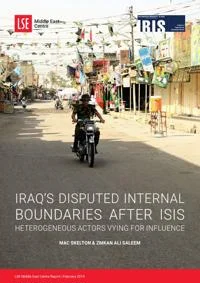
Iraq’s disputed internal boundaries after ISIS: heterogeneous actors vying for influence
February 2019
by Mac Skelton and Zmkan Ali
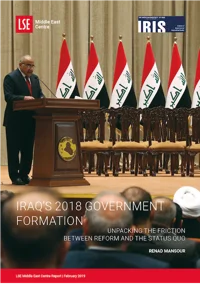
Iraq's 2018 Government Formation: Unpacking the Friction Between Reform and the Status Quo
February 2019
by Renad Mansour

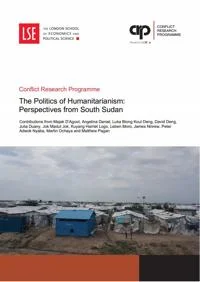
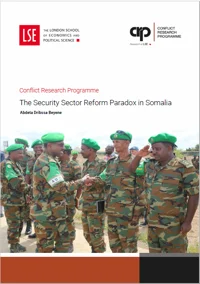
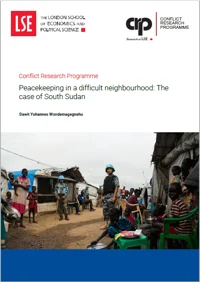
Peacekeeping in a difficult neighbourhood: The case of South Sudan
October 2018
by Dawit Yohannes Wondemagegnehu
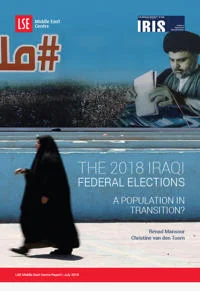
The 2018 Iraqi federal elections: a population in transition?
August 2018
by Renad Mansour and Christine van den Toorn
